Sunday, February 28, 2010
4: POLEMICS CONCERNING GRACE & WORKS
In New Testament times, there arose a polemical situation over "grace" & "works." Was the "law of Moses" in effect along side the higher "laws" or teachings of Christ? Or was the "laws of Moses" done away with, & replaced by the teachings of Christ? Or were they saved by grace alone with out any law? Some early Christians may have read from Paul only those things that they wanted to, while they ignored the other things that Paul said & wrote. Some early Christian began to look for excuses to reject the law. Some of them took their stance to even a greater extreme, than Paul had intended. Some of Paul's converts, seemed to have interpreted Paul's teaching to mean that "grace alone" was it, that they didn't need the law of Moses, but some may have even took it further than that and thought that they didn't even need to live the teachings of Christ. R. Joseph Hoffmann, tells us that these Christians seemed to have reasoned that without the constraints of the Jewish law, anything is possible; & as the Christians is saved by faith rather than by works, anything is permissible. Paul must have been aware of these extreme ill-interpretations of what he wrote & said, & therefore wrote to the saints at Rome, & other areas of the church, that the law is holy, just & good (Rom.7:12), though they were not to confuse the law of Moses with the means of salvation, through Christ who gave the old law to Moses. But also, they were not to seek after the lusts of the flesh, but instead they were to follow Christ's higher laws of moral conduct.1 While different church fathers like Irenaeus & Tertullian argued against other "Christians" groups like the Marcionites, & the Encratities, & assorted gnostic sects, they were not able to successfully block the wave coming from the other side of the shore, namely "...the libertinism" [who had] "normally associated with the salvation cults of the empire. As we have noted, salvationism had imprinted itself on the Christian church at Corinth by the 50s of the first century; by the end of the century, the author of the letter attributed to James offers an already archaic solution--the doing of works (2.14)--as an antidote to the salvation-by-faith doctrine advocated by Paul in his desperate attempts to bring the churches under moral control ...."2
J. R. Hoffmann goes on to point out that by the 2nd century the alliance between the Christians & the mystery religions was an accomplished fact.3 Certainly the rites & ritual of the mysteries contain in the different scatter branches of Christianity, such things must have been questioned (as to if they were needed or not), by those Christian sects that followed "salvationism" by grace alone, with out works. James seems to have been amongst the earliest Christian leaders to respond to this early movement. But we also know from many examples in the New Testament, & the early to later Christian fathers, that this issue concerning "grace" & "works" was a subject of interest. Jude had written against a group of so-called "Christians, antinomians" who had attempted to encourage sexual transgressions, rejected authority & understood divine grace as sanctioning immorality.4
Clement of Rome, [A.D. 30-100], Polycarp, [65-100-155 A.D.], Ignatius, [30-107 A.D.], & others wrote that the Christians should show that they were true Christians by the way they lived. They should live a moral life, & avoid sinful acts. They should show forth good works. Grace & works went together in salvation, for the unrepentant sinners would not be saved. Thus they were to seek the higher laws in becoming an imitator of God.5 Clement of Alexandria, [153-193-217 A.D], wrote against those who sought excuse themselves from living up to the moral codes contained in the Mosaic law.6 Clement of Alex., also wrote that Paul had circumcised Timothy. For "...the noble apostle circumcised Timothy, though loudly declaring & writing that circumcision made with hands profits nothing."7 And that Paul had played the Jew in order that he might convert the Jews away from their apostate ways, in order to bring them unto salvation in Christ, & the gospel.8 What then was the law that the early Christians had in mind when they spoke of being saved by grace & not by the works of the law? Was it the teachings, & laws of Christ? No!, it was the laws of Moses!9 They were not free from the moral laws contained there in, but had advanced to higher laws of moral conduct in the teachings of Jesus Christ. Thus, those who had distorted the teachings, sayings, & writings of the apostles, were in the wrong. They became the target of which the polemical letters of James, Jude, & others, had been in response to. And of which later true Christians had responded to. In being saved, they were not saved from living the teachings of Christ, but were to seek the better path, (the right hand path), towards perfection, by following Christ's example & teachings. The modern "Born-Again" Christian [AM]s should realize that the meaning of "salvation" & being "saved" in many cases in early Christianity, meant something totally different from today's interpretation. Although, there must have been some Christian sects, which we know were heretics, that had similar interpretations that today's "Born-again Christian" might accept, in part. While we Mormons would perhaps disagree with such early extreme so-called "Christian" interpretations, in some area. Then, again, many modern Christians, & Mormons would agree with much of the early Christian teachings on morals & Christian conduct. Another point to consider, however is, that in some cases, to be "saved" meant to be deified. Deification was the product & results of being saved.10 However, in modern times, these ancient concepts now seems to be bitterly rejected by many of today's [AM] "Christians."
GRACE ALONE WORKING AGAINST WORKS!? "Grace & Works" has become the subject of many debates, & discussions amongst the today's Christian sects. We are always hearing today, that all one has to do is accept Jesus Christ as your personal savior & your saved with a prayer of faith, & not by works.11 I find it a strange thing to see such people that claim this "doctrine," or those who have claimed to be "saved" by grace alone, without works, out side temple square, & other places working so hard on the Mormons so they can be "freed from Mormonism" so that they also may "get saved" (as they seem to believe), "...not by works, not by works, not by works..."!12 I have asked some of them why they think that they have to work so hard to get the Mormons not to do good works, in order to also be "saved," as they are. Has doing "good works" become a sin now? If it is a sin, didn't Christ atone for that "sin"? If He has, then why couldn't the grace of God extend to cover the "sin" of doing good works? And if Mormons believe in a "different Jesus" & that's a sin, why couldn't "the real Jesus" also save us by grace for also saying the name of "the Mormon Jesus"?, (as the critics call Him.) Because He "the Jesus of the critics" has "saved" people from all kinds of crimes, sins, though they may have been murderers, satanists, etc., etc.? (Which some of the critics have claimed that they had been before they got "saved"), with a mouth confession in a prayer. If God has "saved" them despite these things, why couldn't that "same Jesus" have also covered the Mormons & any others who the critics believe have "a different Jesus"? Why couldn't this "Jesus" look passed the "sin" of believing in a "different Jesus" & save those who are "guilty" of this lesser "sin"? Or is that "belief" (the belief in "a different Jesus"), a greater sin, & evil than some of the crimes, & evils that these former "murderers," "satanists," etc., were guilty of "before they got saved"? But hasn't their (the critics "Jesus") covered all sins?!13 I have & would also ask them. If God could save them having to do any good works, why couldn't he also have saved us with out their works against us? Why couldn't "their Jesus" go just a step further & "save" us without works, & the works of the critics, who are attempting to work on us to also be saved by grace & not by works? I have also asked some of the critics if their "Jesus" paid the price for all kinds of sins, such as mass murder on the scale that Hitler & others have done? Many of them have said "yes." And even though a person has spent his whole life, as a murderer, rapist, & even may have been the worst tyrant mass murdering satanist. Or had been like Hilter during World War 2, responsible for the death of millions of people throughout the world. Despite all this, some, not all, but some of these critics have said "yes" to the question: "And you say all these types of peoples would be "saved" with this prayer, had they said it right before they died, or at one time in their life?" But what about in the case with many of us Mormons who are "guilty" of attempting to do good works? We have to go to burn in the fire, just because we "had the wrong Jesus"? That doesn't make sense, that doesn't seem just, or fair does it? What about if we were to die, with out saying this prayer to the "real Jesus"? Would we have to also go to hell? Many critics have told me that we would, that why the are working so hard on us to get us to say this "salvation prayer" to the "real Jesus" before it is "to late" before we die! Because then it would be to late, these critics say. If that is the case, then what about all those people who were murdered by the "saved" tyrant, (who may have said the prayer, just in time before his death). Would they have to go to hell, while the tyrant, etc., gets to go to heaven because he said this "prayer to the real Jesus" in life. But they didn't, perhaps having been robbed of the chance to because they were murdered before they got "witnessed to"? What about other people in far distant lands? Why couldn't their "Jesus" save them by grace & not by the works of the modern "born-again" Christians, who are working into the different nations of the world? And who are attempting to find people through their missionary efforts & works? If it is a "sin" to not know the "real Jesus" then why couldn't they who don't know the "real Jesus" also have been saved because they were not given the chance while in life to accept him, having been in nations, or parts of the earth that knew very little or nothing about being "a real Christian"? If it is a "sin" for not having known Christ, then why couldn't this "Jesus" of the critics have saved the ignorant, without a prayer, because he as saved the former murder, & satanist (as the critics have claimed), with a prayer? Which is the greater evil? Murder & satanism, or ignorance? Would it be just & fair for the "Jesus" to save the former murderer, & satanist, etc. while thrusting the ignorant into the flames, just because the ignorant didn't get the chance while in life to learn of & except the "real Jesus"? Why couldn't the "Jesus" of the critics have provided a means for these millions of souls to have heard the "gospel" while on earth through angelic messengers, missionaries, prophets, books, etc. Or at least by preaching the gospel to them in the realms of the spirits so that they get their first chance to be "saved" their? But sense many of today's critics reject in Mormonism, (which as I have shown was a belief defended & believed in earlier Christianity), that Christ went & preached the gospel to those in the spirit world, & that prophets of God have been sent to all the earth, in different times & places, & that Christ went to different parts of the earth, to assure that all of the human family get the chance to hear & accept or reject the gospel. Sense they have rejected this, & fight against the doctrine, what alternate doctrine do they have that gives the whole human family a chance at the same "salvation by grace" that they (the critics) have, & enjoy? Can they support it with the bible? With historical data, & other evidences? Did not Christ atone for the sins of the whole world? If the critics are going forth into the world & are working hard to get people to be "saved", then it seems to me that such critics are performing works for & in behave of the "un-saved." Why then should they object to the Mormons who do the same sorts of things, but also perform baptism for & in behave of the dead, as many of the earlier Christians did in the primitive churches of scatter Christianity? As hard as some critic work for our (the Mormons' & others') salvation, by attempting to "witness" to us, & by attempting to get the "saved" to "witness" to us, & the "unsaved." Why couldn't God just save us also by grace only & not by their works? Jokingly I have said to some of these critics, that it's always comforting to know that their is someone else besides myself, who is also working out my salvation, or who is working hard for my salvation! But if they think that I should be saved by "grace alone" & not by works, I wouldn't mind it if all the critics would stop working against us in order that we may be able to say that we have been saved by "grace alone" & not by their (the critics') works. I have also asked some of the critics if they could some how get my boss at work to pay me by grace alone & not by works. That sure would be nice! When it really comes down to it, there is really no way to get away from works & efforts. If the critics think that they have been saved by grace alone, they should stop & consider all the works that other people have done to get them there. The works of Jesus Christ throughout the centuries, the atonement, his teachings, the efforts & works of the Prophets & Apostles, to preserve that small portion of the "Word of God" as now contained in the present Bible. The efforts & works of the hundreds of scribes, copyists, collectors, & early to later Christians who preserved the word of God as best as they could. Keeping some of the manuscripts out of the hands of the early anti-Christians who would have destroyed them if they could. The efforts & works of those who invented ink, paper, & the printing press. And much later those who went to work at their ink making shops, & the workers working to cut the trees, to make the paper. The workers working in the paper mills, the printing companies, & the truck drivers who go to work to deliver the paper. The book binders, the proof readers, the printers, all working on making the Bibles. The efforts & works of the preachers who went to school to learn about the `Word of God' in order to give it to them, in order so that they could have the word & means of salvation. The efforts & works of the "Christian missionary" who came to their lands, or went out into the world to work on finding "the un-saved." And the works of many other people who went to work in order to helped them get there. Are not all these things, & many more works & efforts part of the final product of what has "saved" many of them? How can anyone claim then, that they have been "saved by grace alone & not by works"? Why couldn't the "Jesus" of the critics have provided a way for these millions of souls to have been able to know the "gospel" while on earth through angelic messengers, missionaries, prophets, & books, etc.? Or at least through the preaching of the gospel in the realms of the spirits so that they could get their first chance to be "saved" their? But sense many of today's critics reject in Mormonism, (a belief that was defended in earlier Christianity too.) The belief that Christ went & preached the gospel to those in the spirit world. And that prophets of God have been sent to all the earth, in different times & places, & that Christ went to different parts of the earth, to assure that all of the human family would get the chance to hear & accept or reject the gospel, wherever they were. Sense some of the critics have rejected these concepts, & fight against these doctrines, in some cases. What alternate doctrine do they have that gives the whole human family a chance at the same "salvation by grace" that they (these critics) claim to have, & enjoy? Can they support it with the bible? With historical data, & other evidences? Didn't Christ atone for the sins of the whole world?14 If the critics are going forth into the world & are working so hard to get people to be "saved". Then it seems to me that these critics are performing works for & in behalf of the "un-saved." Because wouldn't any work that they do from the day that they are "saved" & from then on, not really matter or count towards salvation? For such works wouldn't be taken into consideration at the time that they will be judged. Or will they be taken into consideration? (Rev.20:12). For haven't they, (the critics) already pre-judged themselves as being already "saved" here & now? Works-- (good or bad), having nothing to do with the obtaining of that "free gift"? Now, in having pre-judged themselves "saved" (even before the final Judgment.) They also seem to feel that they can judged others who they consider to be "the unsaved"? But if the works that they do or don't do have no say in their own salvation, because they are already now "saved". Then it seems to me that their good works, or lack of them, would have to be for and in behalf of the "unsaved". Thus, they would have to be preforming good works for & in behalf of other people in order to help bring them to the "real Jesus" so that they too can "get saved". Therefore, their works would have to count for & in behalf of others who are not yet "saved" until they (the "unsaved") get "saved". Now why then should these critics object to the Mormons who do missionary work? And why should the critics object to how Mormons also perform baptisms for & in behalf of the dead? In which a living person is baptized by proxy for & in behalf of the dead. A practice & work that many of the earlier Christians did in fact perform in many of the primitive churches of the scattered branches of early Christianity? As hard as some critics work for our (the Mormons' & others') salvation, by attempting to "witness" to us, & by attempting to get the "saved" to "witness" to "the unsaved". Why couldn't God just save us also by "grace alone" & not by their (the critics') works? Jokingly, I have said to some of these critics, that it's always comforting to know that there is someone else besides myself, who is also "working out my salvation," or who is working hard for my salvation! But if they think that I should be saved by "grace alone" & not by works, I wouldn't mind it if all of the critics would stop working against us in order that we too may be able to say that we have been saved by "grace alone" & not by their (the critics') works. I have also asked some of the critics if they could some how get my boss at work to pay me by grace alone & not by works. That sure would be nice! I don't know why many of these critics are working so hard to get others to not bother with doing any good works. For logically, this seems to be where this type of heretical "doctrine" seems to end for some people, as suggested by the attitudes of some who perhaps should not be considered as representing "official" modern Christians' attitudes. But who seem to think that they can do what ever they want once they have been "saved". Even though some critics have said that such a "doctrine" does not mean that one can go out and do what ever they want. For it does not mean that they have a "free license to sin". But the temptation is there, and some, (not all), have fallen for it. For some have abused "the free gift", and do take it to an extreme and think that they do have a free license to sin. But if goods or bad works don't have a say in becoming eligible for "the free gift" of "salvation". Because such things wouldn't matter. Right?, because after all, it's not what one does that saves them, it's how they believe, Right? Isn't this what the critics are saying? Then it seems to me that this war on works is the same sorts of things that the demons are attempting to do also! For the demons also try to get people to not do good works, don't they? And yet, to be fair, I have heard many of these same critics say, (in answer to those who say that they know of Christians who, despite how they had been "saved", were living in sin.) They, say in answer to this, that these "Christians" are not showing forth evidences that they have been saved. They are not doing good works which is the "fruits" of salvation as evidences that they have been "born- again". And therefore, such a ones as these need to repent & recommit themselves to the Lord.15 When it really comes down to it, there is really no way to get away from works & efforts. So why all this fuss over good works? If the critics think that they have been saved by grace alone, they should stop and consider all the works that other people have done to get them there. Plus, all of the many, many works that they themselves do in attempting to get the "unsaved" to say that "confession prayer" in accepting the "real" Jesus! They should stop and consider the many good works of Jesus Christ throughout the centuries, such as the atonement, his teachings, the efforts & works of the Prophets & Apostles, to preserve that small portion of the "Word of God" as now contained in the present Bible. The efforts & works of the hundreds of scribes, copyists, collectors, & early to later Christians who preserved the word of God as best as they could. Keeping some of the manuscripts out of the hands of early anti-Christians who would have destroyed them if they could. The efforts & works of those who invented ink, paper, & the printing press. And much later, those who went to work at their ink making shops, & the workers working to cut the trees, to make the paper. The workers working in the paper mills, the printing companies, & the truck drivers who go to work to deliver the paper. The book binders, the proof readers, the printers, all working on making the Bibles. The efforts & works of the preachers who went to school to learn about the `Word of God' in order to give it to them, in order so that they could have the words & means of salvation. The efforts & works of the "Christian missionaries" who came to their lands, or went out into the world to work on finding the "un-saved." And the works of many other people who went to work in order to helped them get there. Are not all these things, & many more works & efforts part of the final product of what has "saved" many of them? How can anyone claim then, that they have been "saved by grace alone & not by works"?
BIBLICAL SCRIPTURES ON WORKS. ARE THESE SCRIPTURE TO BE IGNORED? The list of scriptures on "works" & "doing good," etc., are numerous. They seem to have been ignored by many of today's critics who seem to want to give to people a "gospel" that really is not biblical. By selecting only the "grace" scriptures, while passing over in the same writings the "work" scriptures, any one could make a "gospel" based on "faith alone" or salvation by "grace alone". But that would not be a true gospel, based on the biblical gospel, because it would only be selective interpretations of certain scriptures at the rejection of other passages. I have heard different ones quote from the bible a long chain of scriptures to support their position on "faith" & "grace" alone. Then others have countered this by showing the ones on works out of the same writers of the same Bible. Does the Bible contradict itself then? Is grace working against works?16
DOES GRACE COME ABOUT WITH THE HELP OF ONES EFFORTS, OR OTHERS' EFFORTS FOR OTHER PEOPLE? OR IS WORKS A PRODUCE OF GRACE? There are other scriptures that we might consider concerning works & efforts.17 What good would be the Bible & the teachings of Christ & the Apostles if we were to refuse to follow them? Or if we were able to quote any passage, but only made the "gospel" only something to talk about, rather than something to live & do? Or if we were to know of the Bible & the teachings of Christ but were to hardly ever read & apply the things that we read into action of good works. All the efforts & works of all those people who made the "Word of God" available to us would be voided out, if we were to make no effort to do anything productive with that gift.18 The bible came to us as a free gift, as did also the atonement of Christ. But it is what we do or don't do with these gifts that really matters, & determines their worth & value to us on a personal level.
WHAT SHOULD BE OUR MOTIVE IN DOING GOOD WORKS? I think that we all (including myself) need to take a look at our motives in life, by asking ourself why we do the things that we do, or don't do the things we don't do. I have often wondered if many people have accepted the "born-again religion" because it seem to be teaching an easy way out. Just a mouth confession, & a prayer of faith & your forever saved!? No works are needed, many preach now days. It seems then, to be a "religion" based on not how you live, but rather, how you believe. So I think that people may have to take a look at what might be the motives (for many) in accepting this "doctrine." And therefore they should not just "believe" it for the wrong reasons. But should ask themselves if the motive behind accepting Jesus Christ is because they love him. If that is the case, then they would have to keep his commandment in that he said, "If ye love me keep my commandments" (John 14:15). But also in claiming to know Christ as their personal savior, they should keep his commandments, for "He that saith, I know him, and keepth not his commandments, is a liar, and the truth is not in him" (1 John 2:4). I think also that some of us Mormons, (including myself), need to ask this same question of ourselves too. Plus, what is the motive behind what we believe & do? Some of us may be caught up in doing good works, but for the wrong reasons. We should keep in mind that we should be motivated by love in doing good works or it would "profiteth" us "nothing" (1 Cor.13). This concept also shows up in many "near death experiences"19 Some people who have been given a "life review" of their whole life, including their thought. Have been asked "What did you do with your life" How did you love others? What was the motive behind the things that you did? And this is the very thing e Jesus. Therefore, were they "saved" by this mouth confession?48 What if one was to confess with their mouth, but was to live a life of sin? That might suggest that that person was really not interested in following Christ's teachings. We should try to endure to the end for "he that shall endure unto the end, the same shall be saved."49 In modern times, many anti-Mormon "Christians" speak of receiving the free gift of "salvation". They say that they did not have to do anything to receive the gift, because a gift is free, otherwise it wouldn't be a gift. Thus, "salvation"-- or "being saved" is said to be the results of these simple mouth confession prayers. Mormons have a different understanding of "salvation" than do the critics. We believe that salvation is a free gift, if one is talking about salvation as being the same sort of thing as being resurrected. We believe that all will be resurrected and thus, in this case, salvation is a free gift through Christ's atonement & resurrection. There are really many things that we might consider as being free gifts. In that we had nothing to do, or did nothing to obtain the gift. The resurrection, for example, is a free gift, we didn't have to do anything to obtain it. "For as in Adam all die, even so in Christ shall all be made alive." (1 Cor.15:22).50 There are many things that have come to us as a free gift, for besides the free gift of salvation or the resurrection, we have been given the "word of God." We had very little to do with the coming forth of our present Bibles. They came to us as a free gift. We didn't do all the work that went into the preserving, collecting, writing, translating, & making of the Bibles. It basically came down to us as a free gift. But it is what we do with that gift that really matters. If we do nothing with it, if we don't read it, & if we don't live the good teachings & principles contained in that collections of books. Then what good would that free gift be to us? There are cases in early Christianity, in which "salvation"-- to be saved-- in the ultimate sense, also meant to be "deified," to be raised up to godhood. "Irenaeus says: "It is impossible... to live without life & the substance of life is participate in God is to know God & enjoy his goodness, Men therefore shall see God that they may live, being made immortal by the vision & attaining even unto God."51 "Participation in God was carried so far by Irenaeus as to amount to deification. "We were not made gods in the beginning," he says, "but at first men, then at length gods."52 "This is not to be understood as mere rhetorical exaggeration on Irenaeus' part. He meant the statement to be taken literally. Salvation he believed involves the transformation of human nature into divine, that is, of mortal nature into immortal, immortality being the distinguishing quality of deity."53 "Thus salvation means deification in a strict sense."54 There also seems to be the belief, in some cases in early Christianity, that the faithful would be deified. For example: Hippolytus [170-236 A.D.], wrote: "...Thou hast the example of the Logos." [Jesus Christ's example], "His will, however, was, that you should be a man, and He has made thee a man. But if thou are desirous of also becoming a god, obey Him that has created thee, and resist not now, in order that, being found faithful in that which is small, you may be enabled to have entrusted to you also that which is great."55 In being faithful over small things in this realm of existence. We will have shown ourselves to be worthy of even greater trust and responsibilities. Thus, even greater things will be given unto the faithful, even to the point were the faithful will be made rulers over many things. "But that which ye have already hold fast till I come. And he that overcometh, and keepeth my works unto the end, to him will I give power over the nations..." (Rev.2:25-6). I have asked a number of critics what they are going to do in heaven as one who is "saved". Are you going to learn any thing? Yes. Will you therefore progress in knowledge, & learn how the earth was created. Yes. While in heaven with Jesus over the eternities to come. Will He not show you all of the wonderful things He has done, & how He created the universe? Upon learning how it was done, would you be able to create a universe too? Will you be a wicked "saved" person? Or will your righteousness be like unto the good angels? If you are going to gain higher gifts of knowledge. Wouldn't you become closer & closer to the type of intelligence that God has? Some critics have even said that they would be perfected in their resurrected bodies, & they agreed with me that they would reach moral perfection. One critic, finally agreed with me, that as a "saved" person in heaven, he would become "divine". Not that he would take over God's position, but would be divine. He was not willing to say that becoming divine meant the same as becoming "a God", sense he believed that there can only be "one God." But he was willing to say that in heaven, he would eventually become divine. (See also: 2 Pet.1:4). When it comes right down to it, faith & works do not work against each other, but rather, they help support each other in deifying us. When I was in the Mission Training Center = MTC, and before I left for the Oakland California Mission; (many anti-Mormon ministries come out of California). The Apostle Mark E. Peterson came and spoke to the missionaries at the MTC, on December 2, 1980. He warned us against the terrible deceptive teachings and negative spirit of modern anti-Christs. He said that one of the teachings of modern anti-Christs is that grace alone can save. In other words, those who teach that all you have to do is believe in Christ and confess him, and do nothing else to be saved are teaching a deceptive doctrine inspired by the negative spirit of the anti-Christs.56 There have been many time since then, in which I have discerned the negative spirit behind this doctrine as it was being presented to me by "saved by grace alone" Christian anti-Mormons. Perhaps this may be the greatest witness against their teachings, for no matter how hard they may try to proclaim such things as being Christ's gospel, if it is not the truth, the spirit of truth will not bear witness to it. But rather, a negative spirit will be felt, and they can't help this from happening, those who have the gift of discernment will be able to detect that anti-Christ spirit.
End notes 1- Rom. 1:16-32, chap. 2, 10:9-21, 13:8-14, 1 Cor. 6:9-20, 7:2-5, Gal. 3:19-29, 4:1-18, chap. 5, 6:2-10, Eph. 2:2-21, 4:11-32, 5:1-18, 6:11-18, Phil. 4:6-8, Col.3:4-25, etc.
2- (COTTD), Hoffman, op. cit., p.14-15.
3- (COTTD), op. cit., p.15-16).
4- Jude 3-8, Offenders For A Word, op. cit., p.22-3, see also note 69, & pages 28-41, 125-6, 139-49.
5- (TANF) 1: p.5, 7-9, 11, 13-15, 18, 29, 33, 35, 55, 61, 63, 74, 88-9, 93, etc. Offenders For A Word, op. cit., p.32-41.
6- (TANF) 2: p.235, 243-4, 289-90, 292-5, 310, 339-41, 348, 350, 354-61, 363-71, 374-77, 410-12, 417-22, 426-41, 446, 448, 506, 519, 524.
7- Rom.2:25; Eph.2:11.
8- TANF 2:538.
9- From the comments made by Profs. Daniel C. Peterson & Stephen D. Ricks, quests on KTKK 630 Am Radio, Utah's "K-Talk," Radio. Sunday Evening, Oct. 18, 1992, with Martin Tanner as the Talk Show Host for "Religion On The Line."
10- Jaroslav Pelikan's The Emergence of the Catholic Tradition (100-600): The Christian Tradition (Chicago: Un. of Chicago Press, 1971) & the index entry "Salvation--defined as deification," in The Spirit of Eastern Christendom (600-1700): The Christian Tradition (Chicago: Un. of Chicago Press, 1974). See also K. E. Norman, Deification: The Content of Athanasian Soteriology, Ph.D. dissertation, Duke Un. 1980. all this & more are mentioned in The Ensign March 1988, Comparing LDS Beliefs With 1st Century Christianity, by Daniel C. Peterson & Stephen D. Ricks, see p.7-11, note 3 on p.11.
11- [AM] McElveen, op. cit., p.159.
12- Ibid. p.159.
13- Based on a number of discussions with different [AM] critics over the years now.
14- 1 Pet.3:15-22, 4:5-6; Eph.4:7-10; Isa.43: 6-7; (TCATRST), op. cit., pp.94-196; (TANF) 1: pp.70, & 234-5, etc. 2: pp.49, & 490-2, etc., 4: pp.407, 419-20, 422, 444, 447-8, 454, 458, 464, 468, 528, 557, 609, 617, 634, 641, & 660; The Grand Pilgrimage, 1: June-July 1992, pp.32-40, Thorpe; Monumental Christianity, John P. Lundy, 1882, pp.73-4; (COTTD), op. cit., p.65; Anastasis, Anna D. Kartsonis, Princeton Un. Press, 1986. Mormonism & Early Christianity, Huge Nibley, 1987; Matthew Roper, & Martin Tanner, "Religion on the line", KTKK 630 AM Radio, Utah, March 1, 1992.
15- Based on different radio shows: "The Bible Answer Man". And different discussions that I have had with different anti-Mormons over the years.
16- Rev.20:12. AGAINST? Rom.3:27-28; 2 Chr.15:7 AGAINST? Eph.2:5-8; Ps. 28:4 AGAINST? Rom.11:6; Rev.2:23 AGAINST? Titus 3:7; Prov. 24:12, 29 AGAINST? Rom. 10:9-10; Rom. 10:9-17 AGAINST? Gal.2:16-19.
17- 6* Eccl.12:14, Jer.17:10 & 32:19, Micah 6:8, Matt. 5:6, 16, 19-20, 7:16, 21-23, 13:23, 41-6, 16:27, 19:16-17; 25:11-30; 34-6, 1 Cor. 3:8, 6:9; 2 Cor.5:9; John 3:21, 5:29, 12:50; Rom.1:5, 18, 22, 2:6-13; 5:3, 8:16-17, 35, 12:12, 2 Cor. 5:9-10, 6:17, 7:10, 17:7; Gal.6:4-7; Eph. 2:10, 5:5-9; 2 Tim.3:17; Heb.4:11, 17, 5:8-9, 1 Pet.1:10, 17; 2 Pet.1:5; 1 John 3:18, 22, James 1:12, 22-7, 2:26, 4:17-18; Rev.2:7, 11, 3:4-5, 7:14, 22:14, Job 34:11; Isa.1:17; John 14:15; Phil.2:12; John 12:50; Acts 5:32; 10:35, 14:22; 1 Cor.6:9, 2 Thess.1:4-9, Luke 9:23-6, 21:12-15; See also: Topical Guide p.186, of the Holy Bible, King James Version, LDS, Version 1979. In: Mormon Miscellaneous, Mormon Issues, p.8, The Doctrine of Salvation by Grace vrs. Works: A New Look at an Old Controversy. On p.8, is a list of 122 scriptures from just the New Testament alone, which shows the doctrine of works. This list is compared to 10 scripture references on "grace." It is clear from this, that many modern Christian either ignore the other scriptures on works, or they by pass them, or they attempt to argue against them, with the help of the scriptures on grace. The scriptures on works seem to out number the ones on grace. But even if they scriptures on grace were to out number the ones on works, there really should be no war between the two concepts. By reading the scriptures in full, they we see that both concepts blend together & help each other.
18- Matt. chap.25, see also (TANF) Vol.5, p.151, Hippolytus.
19- See: Return from Tomorrow, Ritchie.
20- Portions from other versions: "...for goodness" (The New Testament: A New Translation (James Moffatt) = (Mof). "...for uprightness" (The New Testament: An American Translation (Edgar J. Goodspeed) = (Gspd). "...for being and doing right" (The New Testament: A Translation in the Language of the People (Charles B. Williams) = (Wms). "...for justice" (The New Testament According to the Eastern Texts (George N. Lamsa) = (Lam). "...for holiness" (The New Testament in the Translation of Monsignor Ronald Knox = (Knox). "...to see right prevail" (The New English Bible: New Testament = (NEB). "Happy are those whose heart's desire is for righteousness" (The New Testament in Basic English = (Bas). "Blessed and fortunate and happy and spiritually prosperous [that is, in that state in which the born-again child of God enjoys His favor and salvation] are those who hunger and thirst for righteousness (uprightness and right standing with God)" (The Amplified New Testament = (Amp). (Vaughan, op. cit., p.13; See also: Strong, op. cit., Key-Word Comparison, p.91.)
21- Matthew 5:19-28.
22- Matt.7:21-24, & 25-7.
23- Portions from other versions: "It is not every one who keeps saying to me" (Phi). "...but only he who does the will of my Father..." (TCNT). "...but only those who are obedient to my Father who is in heaven" (Wey). "...who is in the heavens" (Rhm). "but the man who actually does my Heavenly Father's will" (Phi). (Vaughan, op. cit., p.28.)
24- Matt.16:27). Portions from other versions: "repay"/ for what he has done" (RSV). "give... the due reward / for what he has done" (NEB). "reward / according to his behavior" (JB). "recompense / according to his deeds" (NAS). "reward / according to what he has done" (NIV). (Strong, op. cit., Key-Word Comparison, p.101.) "...render to every ... according to his deeds" (The American Standard Version = (ASV). "...he will give back to... according to his practice" (Rhm). "and then he will repay every man for what he has done" (RSV). "and then he will give to every man what his actions deserve" (TCNT). (Vaughan, op. cit., p.70.)
25- Portions from other versions: "...have life age-abiding" (Rhm). "...win eternal life" (Knox). "...secure eternal life" (Ber). "...inherit eternal life" (Mon). "...obtain Immortal Life" (TCNT). "...get everlasting life" (Beck), (Vaughan, op. cit., p.80.)
26- Matt.19:16-22, (KJV), see also: Matt. chapter 25.
27- Portions from other versions: "...are working as a team, with the same aim" (Living Letters: The Paraphrased Epistles; Living Gospels: The Paraphrased Gospels; Living Prophecies: The Minor Prophets Paraphrased and Daniel and the Revelation (Kenneth N. Taylor) = (Tay). "...are working for the same end" (Bas). "The planter and the waterer are one in aim" (Wms). "...shall receive his wages..." (RSV). "...will get his own pay in accordance with his own work" (Wms). (Vaughan, op. cit., pp.731-2.) Notice here that the words "are one" show that the oneness talked about is not that they are one and the same person or substance, but rather, that they are working as one team towards the same aim. Or were working for the same results or end.
28- Notice here that this passage hints to either washings & anointings, or perhaps baptism, for they "were washed" clean of their previous sins. Portions from other versions: "Surely you know that the unjust will never come into possession of..." (NEB). "Have you forgotten that the kingdom of God will never belong to the wicked" (Phi). "Do not you know that wrong-doers will have no share in God's Kingdom" (TCNT). (Vaughan, op. cit., p.740.)
29- This passage of scripture might remind us of what happens in many Near Death Experiences = NDEs. In which the spirit of the person having the NDE goes towards the light of a divine being, (or in other cases angelic beings), were they have a life review in which their whole life, including their thoughts are "made manifest". Or are considered in full view. (See: Return from Tomorrow, Ritchie, op. cit., pp.48-55. Embraced by the Light, op. cit. Plus, a number of unpublished accounts, & a radio interview of Howard Storm's NDE. Etc.) Portions from other versions: "...he who acts up to the truth..." (TCNT). "...the man who lives the truth..." (Rieu). "But he who does what is true comes to the light" (RSV). "to make it plain that all he has done has been done through God" (Phi). "so that his works may be seen..." (Beck). "...that they are done through God" (Lam). (The New Testament from 26 Translations, Vaughan, op. cit., p.352.)
30- Portions from other versions: "They who the good things have done" (Rhm). "those whose actions have been good..." (Knox). "...to the resurrection that is Life" (Rieu). "Those who have done good will rise to live" (Beck). "and they that practised evil..." [unto the resurrection of damnation.] (ABUV). "But they who the corrupt things have practised..." (Rhm). "...to the resurrection of judgment" (ASV). "...will rise again to be judged" (Nor). "but those who have done wrong will rise to face judgment" (Phi). (Vaughan, op. cit., p.361). Also: "damnation" (KJV). "judgment" (RSV), also in (NAS). "doom" (NEB). "condemnation" (JB). "(to be) condemned" (NIV). (Strong, op. cit., Key-Word Comparison, p.159.)
31- Portions from other versions: "...what he commands means eternal life" (Phi). "And I know that His instruction means eternal life" (Rieu). (Vaughan, op. cit., p.400).
32- Other versions: "I have been setting you an example" (Knox). "and you should do as I do to you" (Nor). "you are to do as I have done for you" (NEB). (Vaughan, Ibid., p.402).
33- Portions from other versions: "...ye will keep my commandments" (ASV). "...you will obey my commands" (NEB). "...you will do what I order" (Beck). "If you love me, you will lay my commands to heart". (TCNT). (Vaughan, Ibid., p.407.)
34- Portions from other versions: "unto obedience of faith among all the nations for his name's sake" (ASV). "to bring about the obedience of faith for the sake of his name among all nations" (RSV). "to urge obedience and faith among all the heathen" (Gspd). "to win men to the obedience that springs from faith among all the Gentiles" (Wey). "to urge upon all the heathen obedience inspired by faith" (Wms). "all over the world, men must be taught to honour his name by paying him the homage of their faith" (Knox). (Vaughan, Ibid., pp.646-7).
35- Portions from other versions: "against every form of ungodliness and wickedness on the part of those men" (TCNT). "against the impiety and wrong-doing of the men" (Knox). "against all impiety and injustice of men" (Nor). "falling upon all the godless wickedness of men" (NEB). "who hold back the truth in unrighteousness" (ABUV). "who keep down the truth [which they know] by the wickedness whereby they live" (Con). "who smother the truth by their unrighteousness" (Mon). "who, by their wicked lives, are stifling the truth" (Wey). "who... repress and hinder the truth and make it inoperative" (Amp). "whose wrong-doing denies his truth its full scope" (Knox). (Vaughan, Ibid., p.649).
36- Portions from other versions: "For we must all be made manifest..." (ASV). "For at the Bar of the Christ we must all appear in our true characters" (TCNT). "for we have all to appear without disguise before the tribunal of Christ" (Mof). "All of us have a scrutiny to undergo before Christ's judgement-seat" (Knox). "that each may reap the results of the life which he has lived in the body, in accordance with his actions -- whether good or worthless" (TCNT). "each to be requited for what he has done with his body, well or ill" (Mof). "each to be repaid with good or evil for the life he has lived in the body" (Gspd). "so that each one may receive good or evil, according to what he has done in the body" (RSV). "that each may get his pay for what he has done, whether it be good or bad" (Wms). (Vaughan, op. cit., p.810).
37- Other versions: "...for good works" (ASV). "...to do good works" (Con). "creating us through our union with Christ Jesus for the life of goodness" (Gspd). "God has created us in Christ Jesus, pledged to such good actions" (Knox). "created, by our union with Christ Jesus, for the good action" (TCNT). "because He has created us through our union with Christ Jesus for doing good deeds" (Wms). (Vaughan, op. cit., pages 869-70).
38- KJV, see also 2 Tim.3:14-16). Portions from other versions: "furnished completely unto every good work" (ASV). "Unto every good work being well-prepared" (Rhm). "and adequately equipped for all good work" (Ber). "thoroughly equipped for every good enterprise" (Wms). (Vaughan, op. cit., pages 1006-7).
39- Portions from other versions: "to all them that obey him Author of salvation age-abiding" (Rhm). "to all those who obey him the source of eternal Salvation" (TCNT). "the cause of eternal salvation unto all..." (Alf). "the author of endless salvation for all..." (Wms). "the source of enduring salvation to all..." (The Centenary Translation: The New Testament in Modern English (Helen Bartlett Montgomery = (Mon). "to all who obey Him the source and giver of eternal salvation" (Wey). "for all those who render obedience to him" (Knox). (Vaughan, op. cit., p.1053.)
40- A portion from another version: "judges men by their actions" (Phi). "...Seeing ye have purified your souls in obeying the truth..." (1 Pet.1:22, KJV). Portions from other versions: "Now that, by your obedience to the Truth, you have purified your lives" (TCNT). "...through your obedience to the truth, you have prepared your souls by purification" (Wey). (Vaughan, Ibid., pp.1145-46).
41- Portions from other versions: "Yea, and for this very cause adding on your part all diligence, in your faith supply virtue" (ASV). "for this very reason, do you contrive to make it your whole concern to furnish your faith with resolution" (Mof). "For this very reason make every effort to supplement your faith with goodness" (Gspd). "Now for this very reason you must do your level best to supplement your faith with moral character" (Wms). "With all this in view, you should try your hardest to supplement your faith with virtue" (NEB). "For this very reason do your best to add to your faith manliness" (Mon). "Now for this reason also, applying all diligence, in your faith supply moral excellence" (NASB). "...with your faith exhibit also a noble character" (Wey). [Add to that], "...intelligence" (Mof). [Add] "...self control" (ASV). "...self- restraint" (Alf). [Add] "...endurance" (Rhm). "...steadfastness" (Mof). "...fortitude" (NEB). "...perseverance" (NASB). "...patient endurance" (Wms). [Add] "...piety" (TCNT). "...devotion to God" (Phi). "...the fear of God" (Bas). [Add] "...brotherly affection" (Rhm). "...love to the brethren" (Wey). "...a spirit of brotherhood" (Gspd). [Add] "...love" (ASV). "...Christian love" (Mof). "love itself" (Mon). "...universal love" (Wms). (Vaughan, Ibid., p.1162).
42- Portions from other versions: "...let us put our love not into words or into talk but into deeds, and make it real" (Mof). "...let us not parade our love in word and speech only, but let us show it in deed and in truth" (Nor). (Vaughan, Ibid., p.1180).
43- Dead (KJV), "barren" (RSV), & (NEB), "useless" (JB), (NAS), & (NIV), (Strong, op. cit., Key-Word Comparison, p.219). "...that faith apart from [good] works is inactive and ineffective and worthless" (Amp). "...apart from obedience is worthless" (Wey). "...without good deeds amounts to nothing" (Gspd). "Faith that does not result in good deeds is not real faith" (Tay). (Vaughan, op. cit., pp.1132-3). Portions from other versions: "You see, then, that it is as a result of his actions that a man is pronounced righteous" (TCNT). "You see that a man is shown to be upright by his good deeds and not merely by his faith" (Wms). "not simply by what he believes" (Mof). "so faith divorced from deeds is lifeless as a corpse" (NEB). "so faith is dead without actions" (TCNT). (Vaughan, Ibid., p.1133).
44- Portions from other versions: "He, then, who knows what is right but fails to do it..." (TCNT). "The principle is this, that whosoever knows what is right to do" (Nor). "...he is guilty of sin" (Gspd). (Vaughan, Ibid., p.1139).
45- Portions from other versions: "carry out with fear and trembling your own salvation" (Alf). "with reverence and awe make every effort to insure your salvation" (Gspd). "so now with reverence and awe keep on working clear down to the finishing point of your salvation" (Wms). "labour earnestly, I say, to make sure of your own salvation" (Wey). (Vaughan, Ibid., p.902).
46- Portions from other versions: "...unto them who are yielding obedience unto him" (Rhm). "...to those who are obedient to him" (NEB). (Vaughan, Ibid., p.465.)
47- Portions from other versions: "but that in every nation he who reverences him and does what is right" (TCNT). "but in every nation the man who reveres God and practices doing right" (Wms). "is acceptable to him" (TCNT). "...God is not to show partiality" (TCNT). "...God makes no distinction between one man and another" (Wey). "...God has no favourites" (Mof). "Now I really understand that God shows no partiality" (Gspd). "I now thoroughly grasp the truth that God is not partial" (Ber). (Vaughan, Ibid., p.499).
48- Mark 3:11-12; Luke 8:27-28.
49- Mark 13:13; 2 Pet.20-1; Matt.3:12, 5:17-19, 6:24, 7:13-27, 12:33-36, 18:23-30; John 5:14, 28-9; Heb.5:5-10; 10:26; 4:3; 11:6; Rev. 20:12. Eph. 5:5-7; 1 John 2:4-5; 3:15; Gal.2:17; 6:7; Matt. 24:13; 26:24; Titus 2:14; 3:8; Ecl.12:14. Acts 10:34-6; Rom.5:15-16; Luke 1:6, 3:9-14; 6:46-9, etc.
50- However, in the resurrection, though the good & the bad will be resurrected. There are different kinds of bodies & rewards in the different kinds of resurrections. (See: 1 Cor. 15:35-42; John 5:25-29; Rev.20:5-15.
51- Note 1- Adv. haer. IV. 20:5-6, see also III. 18:7; Iv.22: I:V. I:I.
52- Note 2- Ibid., IV.38:4; see also III. 6:I; IV, pref.4; IV.I.I. The idea of deification appears here & there in other Fathers whose general interpretation of Christianity was radically different from that of Irenaeus".
53- Note 3- Ibid., IV.38:3.
54- A History of Christian Thought, by Arthur Cushman McGiffert, Vol. 1, pp.140-1, see also ft. nts. 1-3, Published by Charles Scribner's Sons, N.Y., & Lon. 1932, & 1954.
55- Matt.25:21, 23; Luke 16:10-12; 2 Pet.1:4; The Ante-Nicene Fathers, Vol.5, pp.150-1, chap.28-9, Hippolytus, book X, The Refutation of All Heresies.
56- Mission Life of DT, Journal #1, pages 12-13, December 2, 1980.
In New Testament times, there arose a polemical situation over "grace" & "works." Was the "law of Moses" in effect along side the higher "laws" or teachings of Christ? Or was the "laws of Moses" done away with, & replaced by the teachings of Christ? Or were they saved by grace alone with out any law? Some early Christians may have read from Paul only those things that they wanted to, while they ignored the other things that Paul said & wrote. Some early Christian began to look for excuses to reject the law. Some of them took their stance to even a greater extreme, than Paul had intended. Some of Paul's converts, seemed to have interpreted Paul's teaching to mean that "grace alone" was it, that they didn't need the law of Moses, but some may have even took it further than that and thought that they didn't even need to live the teachings of Christ. R. Joseph Hoffmann, tells us that these Christians seemed to have reasoned that without the constraints of the Jewish law, anything is possible; & as the Christians is saved by faith rather than by works, anything is permissible. Paul must have been aware of these extreme ill-interpretations of what he wrote & said, & therefore wrote to the saints at Rome, & other areas of the church, that the law is holy, just & good (Rom.7:12), though they were not to confuse the law of Moses with the means of salvation, through Christ who gave the old law to Moses. But also, they were not to seek after the lusts of the flesh, but instead they were to follow Christ's higher laws of moral conduct.1 While different church fathers like Irenaeus & Tertullian argued against other "Christians" groups like the Marcionites, & the Encratities, & assorted gnostic sects, they were not able to successfully block the wave coming from the other side of the shore, namely "...the libertinism" [who had] "normally associated with the salvation cults of the empire. As we have noted, salvationism had imprinted itself on the Christian church at Corinth by the 50s of the first century; by the end of the century, the author of the letter attributed to James offers an already archaic solution--the doing of works (2.14)--as an antidote to the salvation-by-faith doctrine advocated by Paul in his desperate attempts to bring the churches under moral control ...."2
J. R. Hoffmann goes on to point out that by the 2nd century the alliance between the Christians & the mystery religions was an accomplished fact.3 Certainly the rites & ritual of the mysteries contain in the different scatter branches of Christianity, such things must have been questioned (as to if they were needed or not), by those Christian sects that followed "salvationism" by grace alone, with out works. James seems to have been amongst the earliest Christian leaders to respond to this early movement. But we also know from many examples in the New Testament, & the early to later Christian fathers, that this issue concerning "grace" & "works" was a subject of interest. Jude had written against a group of so-called "Christians, antinomians" who had attempted to encourage sexual transgressions, rejected authority & understood divine grace as sanctioning immorality.4
Clement of Rome, [A.D. 30-100], Polycarp, [65-100-155 A.D.], Ignatius, [30-107 A.D.], & others wrote that the Christians should show that they were true Christians by the way they lived. They should live a moral life, & avoid sinful acts. They should show forth good works. Grace & works went together in salvation, for the unrepentant sinners would not be saved. Thus they were to seek the higher laws in becoming an imitator of God.5 Clement of Alexandria, [153-193-217 A.D], wrote against those who sought excuse themselves from living up to the moral codes contained in the Mosaic law.6 Clement of Alex., also wrote that Paul had circumcised Timothy. For "...the noble apostle circumcised Timothy, though loudly declaring & writing that circumcision made with hands profits nothing."7 And that Paul had played the Jew in order that he might convert the Jews away from their apostate ways, in order to bring them unto salvation in Christ, & the gospel.8 What then was the law that the early Christians had in mind when they spoke of being saved by grace & not by the works of the law? Was it the teachings, & laws of Christ? No!, it was the laws of Moses!9 They were not free from the moral laws contained there in, but had advanced to higher laws of moral conduct in the teachings of Jesus Christ. Thus, those who had distorted the teachings, sayings, & writings of the apostles, were in the wrong. They became the target of which the polemical letters of James, Jude, & others, had been in response to. And of which later true Christians had responded to. In being saved, they were not saved from living the teachings of Christ, but were to seek the better path, (the right hand path), towards perfection, by following Christ's example & teachings. The modern "Born-Again" Christian [AM]s should realize that the meaning of "salvation" & being "saved" in many cases in early Christianity, meant something totally different from today's interpretation. Although, there must have been some Christian sects, which we know were heretics, that had similar interpretations that today's "Born-again Christian" might accept, in part. While we Mormons would perhaps disagree with such early extreme so-called "Christian" interpretations, in some area. Then, again, many modern Christians, & Mormons would agree with much of the early Christian teachings on morals & Christian conduct. Another point to consider, however is, that in some cases, to be "saved" meant to be deified. Deification was the product & results of being saved.10 However, in modern times, these ancient concepts now seems to be bitterly rejected by many of today's [AM] "Christians."
GRACE ALONE WORKING AGAINST WORKS!? "Grace & Works" has become the subject of many debates, & discussions amongst the today's Christian sects. We are always hearing today, that all one has to do is accept Jesus Christ as your personal savior & your saved with a prayer of faith, & not by works.11 I find it a strange thing to see such people that claim this "doctrine," or those who have claimed to be "saved" by grace alone, without works, out side temple square, & other places working so hard on the Mormons so they can be "freed from Mormonism" so that they also may "get saved" (as they seem to believe), "...not by works, not by works, not by works..."!12 I have asked some of them why they think that they have to work so hard to get the Mormons not to do good works, in order to also be "saved," as they are. Has doing "good works" become a sin now? If it is a sin, didn't Christ atone for that "sin"? If He has, then why couldn't the grace of God extend to cover the "sin" of doing good works? And if Mormons believe in a "different Jesus" & that's a sin, why couldn't "the real Jesus" also save us by grace for also saying the name of "the Mormon Jesus"?, (as the critics call Him.) Because He "the Jesus of the critics" has "saved" people from all kinds of crimes, sins, though they may have been murderers, satanists, etc., etc.? (Which some of the critics have claimed that they had been before they got "saved"), with a mouth confession in a prayer. If God has "saved" them despite these things, why couldn't that "same Jesus" have also covered the Mormons & any others who the critics believe have "a different Jesus"? Why couldn't this "Jesus" look passed the "sin" of believing in a "different Jesus" & save those who are "guilty" of this lesser "sin"? Or is that "belief" (the belief in "a different Jesus"), a greater sin, & evil than some of the crimes, & evils that these former "murderers," "satanists," etc., were guilty of "before they got saved"? But hasn't their (the critics "Jesus") covered all sins?!13 I have & would also ask them. If God could save them having to do any good works, why couldn't he also have saved us with out their works against us? Why couldn't "their Jesus" go just a step further & "save" us without works, & the works of the critics, who are attempting to work on us to also be saved by grace & not by works? I have also asked some of the critics if their "Jesus" paid the price for all kinds of sins, such as mass murder on the scale that Hitler & others have done? Many of them have said "yes." And even though a person has spent his whole life, as a murderer, rapist, & even may have been the worst tyrant mass murdering satanist. Or had been like Hilter during World War 2, responsible for the death of millions of people throughout the world. Despite all this, some, not all, but some of these critics have said "yes" to the question: "And you say all these types of peoples would be "saved" with this prayer, had they said it right before they died, or at one time in their life?" But what about in the case with many of us Mormons who are "guilty" of attempting to do good works? We have to go to burn in the fire, just because we "had the wrong Jesus"? That doesn't make sense, that doesn't seem just, or fair does it? What about if we were to die, with out saying this prayer to the "real Jesus"? Would we have to also go to hell? Many critics have told me that we would, that why the are working so hard on us to get us to say this "salvation prayer" to the "real Jesus" before it is "to late" before we die! Because then it would be to late, these critics say. If that is the case, then what about all those people who were murdered by the "saved" tyrant, (who may have said the prayer, just in time before his death). Would they have to go to hell, while the tyrant, etc., gets to go to heaven because he said this "prayer to the real Jesus" in life. But they didn't, perhaps having been robbed of the chance to because they were murdered before they got "witnessed to"? What about other people in far distant lands? Why couldn't their "Jesus" save them by grace & not by the works of the modern "born-again" Christians, who are working into the different nations of the world? And who are attempting to find people through their missionary efforts & works? If it is a "sin" to not know the "real Jesus" then why couldn't they who don't know the "real Jesus" also have been saved because they were not given the chance while in life to accept him, having been in nations, or parts of the earth that knew very little or nothing about being "a real Christian"? If it is a "sin" for not having known Christ, then why couldn't this "Jesus" of the critics have saved the ignorant, without a prayer, because he as saved the former murder, & satanist (as the critics have claimed), with a prayer? Which is the greater evil? Murder & satanism, or ignorance? Would it be just & fair for the "Jesus" to save the former murderer, & satanist, etc. while thrusting the ignorant into the flames, just because the ignorant didn't get the chance while in life to learn of & except the "real Jesus"? Why couldn't the "Jesus" of the critics have provided a means for these millions of souls to have heard the "gospel" while on earth through angelic messengers, missionaries, prophets, books, etc. Or at least by preaching the gospel to them in the realms of the spirits so that they get their first chance to be "saved" their? But sense many of today's critics reject in Mormonism, (which as I have shown was a belief defended & believed in earlier Christianity), that Christ went & preached the gospel to those in the spirit world, & that prophets of God have been sent to all the earth, in different times & places, & that Christ went to different parts of the earth, to assure that all of the human family get the chance to hear & accept or reject the gospel. Sense they have rejected this, & fight against the doctrine, what alternate doctrine do they have that gives the whole human family a chance at the same "salvation by grace" that they (the critics) have, & enjoy? Can they support it with the bible? With historical data, & other evidences? Did not Christ atone for the sins of the whole world? If the critics are going forth into the world & are working hard to get people to be "saved", then it seems to me that such critics are performing works for & in behave of the "un-saved." Why then should they object to the Mormons who do the same sorts of things, but also perform baptism for & in behave of the dead, as many of the earlier Christians did in the primitive churches of scatter Christianity? As hard as some critic work for our (the Mormons' & others') salvation, by attempting to "witness" to us, & by attempting to get the "saved" to "witness" to us, & the "unsaved." Why couldn't God just save us also by grace only & not by their works? Jokingly I have said to some of these critics, that it's always comforting to know that their is someone else besides myself, who is also working out my salvation, or who is working hard for my salvation! But if they think that I should be saved by "grace alone" & not by works, I wouldn't mind it if all the critics would stop working against us in order that we may be able to say that we have been saved by "grace alone" & not by their (the critics') works. I have also asked some of the critics if they could some how get my boss at work to pay me by grace alone & not by works. That sure would be nice! When it really comes down to it, there is really no way to get away from works & efforts. If the critics think that they have been saved by grace alone, they should stop & consider all the works that other people have done to get them there. The works of Jesus Christ throughout the centuries, the atonement, his teachings, the efforts & works of the Prophets & Apostles, to preserve that small portion of the "Word of God" as now contained in the present Bible. The efforts & works of the hundreds of scribes, copyists, collectors, & early to later Christians who preserved the word of God as best as they could. Keeping some of the manuscripts out of the hands of the early anti-Christians who would have destroyed them if they could. The efforts & works of those who invented ink, paper, & the printing press. And much later those who went to work at their ink making shops, & the workers working to cut the trees, to make the paper. The workers working in the paper mills, the printing companies, & the truck drivers who go to work to deliver the paper. The book binders, the proof readers, the printers, all working on making the Bibles. The efforts & works of the preachers who went to school to learn about the `Word of God' in order to give it to them, in order so that they could have the word & means of salvation. The efforts & works of the "Christian missionary" who came to their lands, or went out into the world to work on finding "the un-saved." And the works of many other people who went to work in order to helped them get there. Are not all these things, & many more works & efforts part of the final product of what has "saved" many of them? How can anyone claim then, that they have been "saved by grace alone & not by works"? Why couldn't the "Jesus" of the critics have provided a way for these millions of souls to have been able to know the "gospel" while on earth through angelic messengers, missionaries, prophets, & books, etc.? Or at least through the preaching of the gospel in the realms of the spirits so that they could get their first chance to be "saved" their? But sense many of today's critics reject in Mormonism, (a belief that was defended in earlier Christianity too.) The belief that Christ went & preached the gospel to those in the spirit world. And that prophets of God have been sent to all the earth, in different times & places, & that Christ went to different parts of the earth, to assure that all of the human family would get the chance to hear & accept or reject the gospel, wherever they were. Sense some of the critics have rejected these concepts, & fight against these doctrines, in some cases. What alternate doctrine do they have that gives the whole human family a chance at the same "salvation by grace" that they (these critics) claim to have, & enjoy? Can they support it with the bible? With historical data, & other evidences? Didn't Christ atone for the sins of the whole world?14 If the critics are going forth into the world & are working so hard to get people to be "saved". Then it seems to me that these critics are performing works for & in behalf of the "un-saved." Because wouldn't any work that they do from the day that they are "saved" & from then on, not really matter or count towards salvation? For such works wouldn't be taken into consideration at the time that they will be judged. Or will they be taken into consideration? (Rev.20:12). For haven't they, (the critics) already pre-judged themselves as being already "saved" here & now? Works-- (good or bad), having nothing to do with the obtaining of that "free gift"? Now, in having pre-judged themselves "saved" (even before the final Judgment.) They also seem to feel that they can judged others who they consider to be "the unsaved"? But if the works that they do or don't do have no say in their own salvation, because they are already now "saved". Then it seems to me that their good works, or lack of them, would have to be for and in behalf of the "unsaved". Thus, they would have to be preforming good works for & in behalf of other people in order to help bring them to the "real Jesus" so that they too can "get saved". Therefore, their works would have to count for & in behalf of others who are not yet "saved" until they (the "unsaved") get "saved". Now why then should these critics object to the Mormons who do missionary work? And why should the critics object to how Mormons also perform baptisms for & in behalf of the dead? In which a living person is baptized by proxy for & in behalf of the dead. A practice & work that many of the earlier Christians did in fact perform in many of the primitive churches of the scattered branches of early Christianity? As hard as some critics work for our (the Mormons' & others') salvation, by attempting to "witness" to us, & by attempting to get the "saved" to "witness" to "the unsaved". Why couldn't God just save us also by "grace alone" & not by their (the critics') works? Jokingly, I have said to some of these critics, that it's always comforting to know that there is someone else besides myself, who is also "working out my salvation," or who is working hard for my salvation! But if they think that I should be saved by "grace alone" & not by works, I wouldn't mind it if all of the critics would stop working against us in order that we too may be able to say that we have been saved by "grace alone" & not by their (the critics') works. I have also asked some of the critics if they could some how get my boss at work to pay me by grace alone & not by works. That sure would be nice! I don't know why many of these critics are working so hard to get others to not bother with doing any good works. For logically, this seems to be where this type of heretical "doctrine" seems to end for some people, as suggested by the attitudes of some who perhaps should not be considered as representing "official" modern Christians' attitudes. But who seem to think that they can do what ever they want once they have been "saved". Even though some critics have said that such a "doctrine" does not mean that one can go out and do what ever they want. For it does not mean that they have a "free license to sin". But the temptation is there, and some, (not all), have fallen for it. For some have abused "the free gift", and do take it to an extreme and think that they do have a free license to sin. But if goods or bad works don't have a say in becoming eligible for "the free gift" of "salvation". Because such things wouldn't matter. Right?, because after all, it's not what one does that saves them, it's how they believe, Right? Isn't this what the critics are saying? Then it seems to me that this war on works is the same sorts of things that the demons are attempting to do also! For the demons also try to get people to not do good works, don't they? And yet, to be fair, I have heard many of these same critics say, (in answer to those who say that they know of Christians who, despite how they had been "saved", were living in sin.) They, say in answer to this, that these "Christians" are not showing forth evidences that they have been saved. They are not doing good works which is the "fruits" of salvation as evidences that they have been "born- again". And therefore, such a ones as these need to repent & recommit themselves to the Lord.15 When it really comes down to it, there is really no way to get away from works & efforts. So why all this fuss over good works? If the critics think that they have been saved by grace alone, they should stop and consider all the works that other people have done to get them there. Plus, all of the many, many works that they themselves do in attempting to get the "unsaved" to say that "confession prayer" in accepting the "real" Jesus! They should stop and consider the many good works of Jesus Christ throughout the centuries, such as the atonement, his teachings, the efforts & works of the Prophets & Apostles, to preserve that small portion of the "Word of God" as now contained in the present Bible. The efforts & works of the hundreds of scribes, copyists, collectors, & early to later Christians who preserved the word of God as best as they could. Keeping some of the manuscripts out of the hands of early anti-Christians who would have destroyed them if they could. The efforts & works of those who invented ink, paper, & the printing press. And much later, those who went to work at their ink making shops, & the workers working to cut the trees, to make the paper. The workers working in the paper mills, the printing companies, & the truck drivers who go to work to deliver the paper. The book binders, the proof readers, the printers, all working on making the Bibles. The efforts & works of the preachers who went to school to learn about the `Word of God' in order to give it to them, in order so that they could have the words & means of salvation. The efforts & works of the "Christian missionaries" who came to their lands, or went out into the world to work on finding the "un-saved." And the works of many other people who went to work in order to helped them get there. Are not all these things, & many more works & efforts part of the final product of what has "saved" many of them? How can anyone claim then, that they have been "saved by grace alone & not by works"?
BIBLICAL SCRIPTURES ON WORKS. ARE THESE SCRIPTURE TO BE IGNORED? The list of scriptures on "works" & "doing good," etc., are numerous. They seem to have been ignored by many of today's critics who seem to want to give to people a "gospel" that really is not biblical. By selecting only the "grace" scriptures, while passing over in the same writings the "work" scriptures, any one could make a "gospel" based on "faith alone" or salvation by "grace alone". But that would not be a true gospel, based on the biblical gospel, because it would only be selective interpretations of certain scriptures at the rejection of other passages. I have heard different ones quote from the bible a long chain of scriptures to support their position on "faith" & "grace" alone. Then others have countered this by showing the ones on works out of the same writers of the same Bible. Does the Bible contradict itself then? Is grace working against works?16
DOES GRACE COME ABOUT WITH THE HELP OF ONES EFFORTS, OR OTHERS' EFFORTS FOR OTHER PEOPLE? OR IS WORKS A PRODUCE OF GRACE? There are other scriptures that we might consider concerning works & efforts.17 What good would be the Bible & the teachings of Christ & the Apostles if we were to refuse to follow them? Or if we were able to quote any passage, but only made the "gospel" only something to talk about, rather than something to live & do? Or if we were to know of the Bible & the teachings of Christ but were to hardly ever read & apply the things that we read into action of good works. All the efforts & works of all those people who made the "Word of God" available to us would be voided out, if we were to make no effort to do anything productive with that gift.18 The bible came to us as a free gift, as did also the atonement of Christ. But it is what we do or don't do with these gifts that really matters, & determines their worth & value to us on a personal level.
WHAT SHOULD BE OUR MOTIVE IN DOING GOOD WORKS? I think that we all (including myself) need to take a look at our motives in life, by asking ourself why we do the things that we do, or don't do the things we don't do. I have often wondered if many people have accepted the "born-again religion" because it seem to be teaching an easy way out. Just a mouth confession, & a prayer of faith & your forever saved!? No works are needed, many preach now days. It seems then, to be a "religion" based on not how you live, but rather, how you believe. So I think that people may have to take a look at what might be the motives (for many) in accepting this "doctrine." And therefore they should not just "believe" it for the wrong reasons. But should ask themselves if the motive behind accepting Jesus Christ is because they love him. If that is the case, then they would have to keep his commandment in that he said, "If ye love me keep my commandments" (John 14:15). But also in claiming to know Christ as their personal savior, they should keep his commandments, for "He that saith, I know him, and keepth not his commandments, is a liar, and the truth is not in him" (1 John 2:4). I think also that some of us Mormons, (including myself), need to ask this same question of ourselves too. Plus, what is the motive behind what we believe & do? Some of us may be caught up in doing good works, but for the wrong reasons. We should keep in mind that we should be motivated by love in doing good works or it would "profiteth" us "nothing" (1 Cor.13). This concept also shows up in many "near death experiences"19 Some people who have been given a "life review" of their whole life, including their thought. Have been asked "What did you do with your life" How did you love others? What was the motive behind the things that you did? And this is the very thing e Jesus. Therefore, were they "saved" by this mouth confession?48 What if one was to confess with their mouth, but was to live a life of sin? That might suggest that that person was really not interested in following Christ's teachings. We should try to endure to the end for "he that shall endure unto the end, the same shall be saved."49 In modern times, many anti-Mormon "Christians" speak of receiving the free gift of "salvation". They say that they did not have to do anything to receive the gift, because a gift is free, otherwise it wouldn't be a gift. Thus, "salvation"-- or "being saved" is said to be the results of these simple mouth confession prayers. Mormons have a different understanding of "salvation" than do the critics. We believe that salvation is a free gift, if one is talking about salvation as being the same sort of thing as being resurrected. We believe that all will be resurrected and thus, in this case, salvation is a free gift through Christ's atonement & resurrection. There are really many things that we might consider as being free gifts. In that we had nothing to do, or did nothing to obtain the gift. The resurrection, for example, is a free gift, we didn't have to do anything to obtain it. "For as in Adam all die, even so in Christ shall all be made alive." (1 Cor.15:22).50 There are many things that have come to us as a free gift, for besides the free gift of salvation or the resurrection, we have been given the "word of God." We had very little to do with the coming forth of our present Bibles. They came to us as a free gift. We didn't do all the work that went into the preserving, collecting, writing, translating, & making of the Bibles. It basically came down to us as a free gift. But it is what we do with that gift that really matters. If we do nothing with it, if we don't read it, & if we don't live the good teachings & principles contained in that collections of books. Then what good would that free gift be to us? There are cases in early Christianity, in which "salvation"-- to be saved-- in the ultimate sense, also meant to be "deified," to be raised up to godhood. "Irenaeus says: "It is impossible... to live without life & the substance of life is participate in God is to know God & enjoy his goodness, Men therefore shall see God that they may live, being made immortal by the vision & attaining even unto God."51 "Participation in God was carried so far by Irenaeus as to amount to deification. "We were not made gods in the beginning," he says, "but at first men, then at length gods."52 "This is not to be understood as mere rhetorical exaggeration on Irenaeus' part. He meant the statement to be taken literally. Salvation he believed involves the transformation of human nature into divine, that is, of mortal nature into immortal, immortality being the distinguishing quality of deity."53 "Thus salvation means deification in a strict sense."54 There also seems to be the belief, in some cases in early Christianity, that the faithful would be deified. For example: Hippolytus [170-236 A.D.], wrote: "...Thou hast the example of the Logos." [Jesus Christ's example], "His will, however, was, that you should be a man, and He has made thee a man. But if thou are desirous of also becoming a god, obey Him that has created thee, and resist not now, in order that, being found faithful in that which is small, you may be enabled to have entrusted to you also that which is great."55 In being faithful over small things in this realm of existence. We will have shown ourselves to be worthy of even greater trust and responsibilities. Thus, even greater things will be given unto the faithful, even to the point were the faithful will be made rulers over many things. "But that which ye have already hold fast till I come. And he that overcometh, and keepeth my works unto the end, to him will I give power over the nations..." (Rev.2:25-6). I have asked a number of critics what they are going to do in heaven as one who is "saved". Are you going to learn any thing? Yes. Will you therefore progress in knowledge, & learn how the earth was created. Yes. While in heaven with Jesus over the eternities to come. Will He not show you all of the wonderful things He has done, & how He created the universe? Upon learning how it was done, would you be able to create a universe too? Will you be a wicked "saved" person? Or will your righteousness be like unto the good angels? If you are going to gain higher gifts of knowledge. Wouldn't you become closer & closer to the type of intelligence that God has? Some critics have even said that they would be perfected in their resurrected bodies, & they agreed with me that they would reach moral perfection. One critic, finally agreed with me, that as a "saved" person in heaven, he would become "divine". Not that he would take over God's position, but would be divine. He was not willing to say that becoming divine meant the same as becoming "a God", sense he believed that there can only be "one God." But he was willing to say that in heaven, he would eventually become divine. (See also: 2 Pet.1:4). When it comes right down to it, faith & works do not work against each other, but rather, they help support each other in deifying us. When I was in the Mission Training Center = MTC, and before I left for the Oakland California Mission; (many anti-Mormon ministries come out of California). The Apostle Mark E. Peterson came and spoke to the missionaries at the MTC, on December 2, 1980. He warned us against the terrible deceptive teachings and negative spirit of modern anti-Christs. He said that one of the teachings of modern anti-Christs is that grace alone can save. In other words, those who teach that all you have to do is believe in Christ and confess him, and do nothing else to be saved are teaching a deceptive doctrine inspired by the negative spirit of the anti-Christs.56 There have been many time since then, in which I have discerned the negative spirit behind this doctrine as it was being presented to me by "saved by grace alone" Christian anti-Mormons. Perhaps this may be the greatest witness against their teachings, for no matter how hard they may try to proclaim such things as being Christ's gospel, if it is not the truth, the spirit of truth will not bear witness to it. But rather, a negative spirit will be felt, and they can't help this from happening, those who have the gift of discernment will be able to detect that anti-Christ spirit.
End notes 1- Rom. 1:16-32, chap. 2, 10:9-21, 13:8-14, 1 Cor. 6:9-20, 7:2-5, Gal. 3:19-29, 4:1-18, chap. 5, 6:2-10, Eph. 2:2-21, 4:11-32, 5:1-18, 6:11-18, Phil. 4:6-8, Col.3:4-25, etc.
2- (COTTD), Hoffman, op. cit., p.14-15.
3- (COTTD), op. cit., p.15-16).
4- Jude 3-8, Offenders For A Word, op. cit., p.22-3, see also note 69, & pages 28-41, 125-6, 139-49.
5- (TANF) 1: p.5, 7-9, 11, 13-15, 18, 29, 33, 35, 55, 61, 63, 74, 88-9, 93, etc. Offenders For A Word, op. cit., p.32-41.
6- (TANF) 2: p.235, 243-4, 289-90, 292-5, 310, 339-41, 348, 350, 354-61, 363-71, 374-77, 410-12, 417-22, 426-41, 446, 448, 506, 519, 524.
7- Rom.2:25; Eph.2:11.
8- TANF 2:538.
9- From the comments made by Profs. Daniel C. Peterson & Stephen D. Ricks, quests on KTKK 630 Am Radio, Utah's "K-Talk," Radio. Sunday Evening, Oct. 18, 1992, with Martin Tanner as the Talk Show Host for "Religion On The Line."
10- Jaroslav Pelikan's The Emergence of the Catholic Tradition (100-600): The Christian Tradition (Chicago: Un. of Chicago Press, 1971) & the index entry "Salvation--defined as deification," in The Spirit of Eastern Christendom (600-1700): The Christian Tradition (Chicago: Un. of Chicago Press, 1974). See also K. E. Norman, Deification: The Content of Athanasian Soteriology, Ph.D. dissertation, Duke Un. 1980. all this & more are mentioned in The Ensign March 1988, Comparing LDS Beliefs With 1st Century Christianity, by Daniel C. Peterson & Stephen D. Ricks, see p.7-11, note 3 on p.11.
11- [AM] McElveen, op. cit., p.159.
12- Ibid. p.159.
13- Based on a number of discussions with different [AM] critics over the years now.
14- 1 Pet.3:15-22, 4:5-6; Eph.4:7-10; Isa.43: 6-7; (TCATRST), op. cit., pp.94-196; (TANF) 1: pp.70, & 234-5, etc. 2: pp.49, & 490-2, etc., 4: pp.407, 419-20, 422, 444, 447-8, 454, 458, 464, 468, 528, 557, 609, 617, 634, 641, & 660; The Grand Pilgrimage, 1: June-July 1992, pp.32-40, Thorpe; Monumental Christianity, John P. Lundy, 1882, pp.73-4; (COTTD), op. cit., p.65; Anastasis, Anna D. Kartsonis, Princeton Un. Press, 1986. Mormonism & Early Christianity, Huge Nibley, 1987; Matthew Roper, & Martin Tanner, "Religion on the line", KTKK 630 AM Radio, Utah, March 1, 1992.
15- Based on different radio shows: "The Bible Answer Man". And different discussions that I have had with different anti-Mormons over the years.
16- Rev.20:12. AGAINST? Rom.3:27-28; 2 Chr.15:7 AGAINST? Eph.2:5-8; Ps. 28:4 AGAINST? Rom.11:6; Rev.2:23 AGAINST? Titus 3:7; Prov. 24:12, 29 AGAINST? Rom. 10:9-10; Rom. 10:9-17 AGAINST? Gal.2:16-19.
17- 6* Eccl.12:14, Jer.17:10 & 32:19, Micah 6:8, Matt. 5:6, 16, 19-20, 7:16, 21-23, 13:23, 41-6, 16:27, 19:16-17; 25:11-30; 34-6, 1 Cor. 3:8, 6:9; 2 Cor.5:9; John 3:21, 5:29, 12:50; Rom.1:5, 18, 22, 2:6-13; 5:3, 8:16-17, 35, 12:12, 2 Cor. 5:9-10, 6:17, 7:10, 17:7; Gal.6:4-7; Eph. 2:10, 5:5-9; 2 Tim.3:17; Heb.4:11, 17, 5:8-9, 1 Pet.1:10, 17; 2 Pet.1:5; 1 John 3:18, 22, James 1:12, 22-7, 2:26, 4:17-18; Rev.2:7, 11, 3:4-5, 7:14, 22:14, Job 34:11; Isa.1:17; John 14:15; Phil.2:12; John 12:50; Acts 5:32; 10:35, 14:22; 1 Cor.6:9, 2 Thess.1:4-9, Luke 9:23-6, 21:12-15; See also: Topical Guide p.186, of the Holy Bible, King James Version, LDS, Version 1979. In: Mormon Miscellaneous, Mormon Issues, p.8, The Doctrine of Salvation by Grace vrs. Works: A New Look at an Old Controversy. On p.8, is a list of 122 scriptures from just the New Testament alone, which shows the doctrine of works. This list is compared to 10 scripture references on "grace." It is clear from this, that many modern Christian either ignore the other scriptures on works, or they by pass them, or they attempt to argue against them, with the help of the scriptures on grace. The scriptures on works seem to out number the ones on grace. But even if they scriptures on grace were to out number the ones on works, there really should be no war between the two concepts. By reading the scriptures in full, they we see that both concepts blend together & help each other.
18- Matt. chap.25, see also (TANF) Vol.5, p.151, Hippolytus.
19- See: Return from Tomorrow, Ritchie.
20- Portions from other versions: "...for goodness" (The New Testament: A New Translation (James Moffatt) = (Mof). "...for uprightness" (The New Testament: An American Translation (Edgar J. Goodspeed) = (Gspd). "...for being and doing right" (The New Testament: A Translation in the Language of the People (Charles B. Williams) = (Wms). "...for justice" (The New Testament According to the Eastern Texts (George N. Lamsa) = (Lam). "...for holiness" (The New Testament in the Translation of Monsignor Ronald Knox = (Knox). "...to see right prevail" (The New English Bible: New Testament = (NEB). "Happy are those whose heart's desire is for righteousness" (The New Testament in Basic English = (Bas). "Blessed and fortunate and happy and spiritually prosperous [that is, in that state in which the born-again child of God enjoys His favor and salvation] are those who hunger and thirst for righteousness (uprightness and right standing with God)" (The Amplified New Testament = (Amp). (Vaughan, op. cit., p.13; See also: Strong, op. cit., Key-Word Comparison, p.91.)
21- Matthew 5:19-28.
22- Matt.7:21-24, & 25-7.
23- Portions from other versions: "It is not every one who keeps saying to me" (Phi). "...but only he who does the will of my Father..." (TCNT). "...but only those who are obedient to my Father who is in heaven" (Wey). "...who is in the heavens" (Rhm). "but the man who actually does my Heavenly Father's will" (Phi). (Vaughan, op. cit., p.28.)
24- Matt.16:27). Portions from other versions: "repay"/ for what he has done" (RSV). "give... the due reward / for what he has done" (NEB). "reward / according to his behavior" (JB). "recompense / according to his deeds" (NAS). "reward / according to what he has done" (NIV). (Strong, op. cit., Key-Word Comparison, p.101.) "...render to every ... according to his deeds" (The American Standard Version = (ASV). "...he will give back to... according to his practice" (Rhm). "and then he will repay every man for what he has done" (RSV). "and then he will give to every man what his actions deserve" (TCNT). (Vaughan, op. cit., p.70.)
25- Portions from other versions: "...have life age-abiding" (Rhm). "...win eternal life" (Knox). "...secure eternal life" (Ber). "...inherit eternal life" (Mon). "...obtain Immortal Life" (TCNT). "...get everlasting life" (Beck), (Vaughan, op. cit., p.80.)
26- Matt.19:16-22, (KJV), see also: Matt. chapter 25.
27- Portions from other versions: "...are working as a team, with the same aim" (Living Letters: The Paraphrased Epistles; Living Gospels: The Paraphrased Gospels; Living Prophecies: The Minor Prophets Paraphrased and Daniel and the Revelation (Kenneth N. Taylor) = (Tay). "...are working for the same end" (Bas). "The planter and the waterer are one in aim" (Wms). "...shall receive his wages..." (RSV). "...will get his own pay in accordance with his own work" (Wms). (Vaughan, op. cit., pp.731-2.) Notice here that the words "are one" show that the oneness talked about is not that they are one and the same person or substance, but rather, that they are working as one team towards the same aim. Or were working for the same results or end.
28- Notice here that this passage hints to either washings & anointings, or perhaps baptism, for they "were washed" clean of their previous sins. Portions from other versions: "Surely you know that the unjust will never come into possession of..." (NEB). "Have you forgotten that the kingdom of God will never belong to the wicked" (Phi). "Do not you know that wrong-doers will have no share in God's Kingdom" (TCNT). (Vaughan, op. cit., p.740.)
29- This passage of scripture might remind us of what happens in many Near Death Experiences = NDEs. In which the spirit of the person having the NDE goes towards the light of a divine being, (or in other cases angelic beings), were they have a life review in which their whole life, including their thoughts are "made manifest". Or are considered in full view. (See: Return from Tomorrow, Ritchie, op. cit., pp.48-55. Embraced by the Light, op. cit. Plus, a number of unpublished accounts, & a radio interview of Howard Storm's NDE. Etc.) Portions from other versions: "...he who acts up to the truth..." (TCNT). "...the man who lives the truth..." (Rieu). "But he who does what is true comes to the light" (RSV). "to make it plain that all he has done has been done through God" (Phi). "so that his works may be seen..." (Beck). "...that they are done through God" (Lam). (The New Testament from 26 Translations, Vaughan, op. cit., p.352.)
30- Portions from other versions: "They who the good things have done" (Rhm). "those whose actions have been good..." (Knox). "...to the resurrection that is Life" (Rieu). "Those who have done good will rise to live" (Beck). "and they that practised evil..." [unto the resurrection of damnation.] (ABUV). "But they who the corrupt things have practised..." (Rhm). "...to the resurrection of judgment" (ASV). "...will rise again to be judged" (Nor). "but those who have done wrong will rise to face judgment" (Phi). (Vaughan, op. cit., p.361). Also: "damnation" (KJV). "judgment" (RSV), also in (NAS). "doom" (NEB). "condemnation" (JB). "(to be) condemned" (NIV). (Strong, op. cit., Key-Word Comparison, p.159.)
31- Portions from other versions: "...what he commands means eternal life" (Phi). "And I know that His instruction means eternal life" (Rieu). (Vaughan, op. cit., p.400).
32- Other versions: "I have been setting you an example" (Knox). "and you should do as I do to you" (Nor). "you are to do as I have done for you" (NEB). (Vaughan, Ibid., p.402).
33- Portions from other versions: "...ye will keep my commandments" (ASV). "...you will obey my commands" (NEB). "...you will do what I order" (Beck). "If you love me, you will lay my commands to heart". (TCNT). (Vaughan, Ibid., p.407.)
34- Portions from other versions: "unto obedience of faith among all the nations for his name's sake" (ASV). "to bring about the obedience of faith for the sake of his name among all nations" (RSV). "to urge obedience and faith among all the heathen" (Gspd). "to win men to the obedience that springs from faith among all the Gentiles" (Wey). "to urge upon all the heathen obedience inspired by faith" (Wms). "all over the world, men must be taught to honour his name by paying him the homage of their faith" (Knox). (Vaughan, Ibid., pp.646-7).
35- Portions from other versions: "against every form of ungodliness and wickedness on the part of those men" (TCNT). "against the impiety and wrong-doing of the men" (Knox). "against all impiety and injustice of men" (Nor). "falling upon all the godless wickedness of men" (NEB). "who hold back the truth in unrighteousness" (ABUV). "who keep down the truth [which they know] by the wickedness whereby they live" (Con). "who smother the truth by their unrighteousness" (Mon). "who, by their wicked lives, are stifling the truth" (Wey). "who... repress and hinder the truth and make it inoperative" (Amp). "whose wrong-doing denies his truth its full scope" (Knox). (Vaughan, Ibid., p.649).
36- Portions from other versions: "For we must all be made manifest..." (ASV). "For at the Bar of the Christ we must all appear in our true characters" (TCNT). "for we have all to appear without disguise before the tribunal of Christ" (Mof). "All of us have a scrutiny to undergo before Christ's judgement-seat" (Knox). "that each may reap the results of the life which he has lived in the body, in accordance with his actions -- whether good or worthless" (TCNT). "each to be requited for what he has done with his body, well or ill" (Mof). "each to be repaid with good or evil for the life he has lived in the body" (Gspd). "so that each one may receive good or evil, according to what he has done in the body" (RSV). "that each may get his pay for what he has done, whether it be good or bad" (Wms). (Vaughan, op. cit., p.810).
37- Other versions: "...for good works" (ASV). "...to do good works" (Con). "creating us through our union with Christ Jesus for the life of goodness" (Gspd). "God has created us in Christ Jesus, pledged to such good actions" (Knox). "created, by our union with Christ Jesus, for the good action" (TCNT). "because He has created us through our union with Christ Jesus for doing good deeds" (Wms). (Vaughan, op. cit., pages 869-70).
38- KJV, see also 2 Tim.3:14-16). Portions from other versions: "furnished completely unto every good work" (ASV). "Unto every good work being well-prepared" (Rhm). "and adequately equipped for all good work" (Ber). "thoroughly equipped for every good enterprise" (Wms). (Vaughan, op. cit., pages 1006-7).
39- Portions from other versions: "to all them that obey him Author of salvation age-abiding" (Rhm). "to all those who obey him the source of eternal Salvation" (TCNT). "the cause of eternal salvation unto all..." (Alf). "the author of endless salvation for all..." (Wms). "the source of enduring salvation to all..." (The Centenary Translation: The New Testament in Modern English (Helen Bartlett Montgomery = (Mon). "to all who obey Him the source and giver of eternal salvation" (Wey). "for all those who render obedience to him" (Knox). (Vaughan, op. cit., p.1053.)
40- A portion from another version: "judges men by their actions" (Phi). "...Seeing ye have purified your souls in obeying the truth..." (1 Pet.1:22, KJV). Portions from other versions: "Now that, by your obedience to the Truth, you have purified your lives" (TCNT). "...through your obedience to the truth, you have prepared your souls by purification" (Wey). (Vaughan, Ibid., pp.1145-46).
41- Portions from other versions: "Yea, and for this very cause adding on your part all diligence, in your faith supply virtue" (ASV). "for this very reason, do you contrive to make it your whole concern to furnish your faith with resolution" (Mof). "For this very reason make every effort to supplement your faith with goodness" (Gspd). "Now for this very reason you must do your level best to supplement your faith with moral character" (Wms). "With all this in view, you should try your hardest to supplement your faith with virtue" (NEB). "For this very reason do your best to add to your faith manliness" (Mon). "Now for this reason also, applying all diligence, in your faith supply moral excellence" (NASB). "...with your faith exhibit also a noble character" (Wey). [Add to that], "...intelligence" (Mof). [Add] "...self control" (ASV). "...self- restraint" (Alf). [Add] "...endurance" (Rhm). "...steadfastness" (Mof). "...fortitude" (NEB). "...perseverance" (NASB). "...patient endurance" (Wms). [Add] "...piety" (TCNT). "...devotion to God" (Phi). "...the fear of God" (Bas). [Add] "...brotherly affection" (Rhm). "...love to the brethren" (Wey). "...a spirit of brotherhood" (Gspd). [Add] "...love" (ASV). "...Christian love" (Mof). "love itself" (Mon). "...universal love" (Wms). (Vaughan, Ibid., p.1162).
42- Portions from other versions: "...let us put our love not into words or into talk but into deeds, and make it real" (Mof). "...let us not parade our love in word and speech only, but let us show it in deed and in truth" (Nor). (Vaughan, Ibid., p.1180).
43- Dead (KJV), "barren" (RSV), & (NEB), "useless" (JB), (NAS), & (NIV), (Strong, op. cit., Key-Word Comparison, p.219). "...that faith apart from [good] works is inactive and ineffective and worthless" (Amp). "...apart from obedience is worthless" (Wey). "...without good deeds amounts to nothing" (Gspd). "Faith that does not result in good deeds is not real faith" (Tay). (Vaughan, op. cit., pp.1132-3). Portions from other versions: "You see, then, that it is as a result of his actions that a man is pronounced righteous" (TCNT). "You see that a man is shown to be upright by his good deeds and not merely by his faith" (Wms). "not simply by what he believes" (Mof). "so faith divorced from deeds is lifeless as a corpse" (NEB). "so faith is dead without actions" (TCNT). (Vaughan, Ibid., p.1133).
44- Portions from other versions: "He, then, who knows what is right but fails to do it..." (TCNT). "The principle is this, that whosoever knows what is right to do" (Nor). "...he is guilty of sin" (Gspd). (Vaughan, Ibid., p.1139).
45- Portions from other versions: "carry out with fear and trembling your own salvation" (Alf). "with reverence and awe make every effort to insure your salvation" (Gspd). "so now with reverence and awe keep on working clear down to the finishing point of your salvation" (Wms). "labour earnestly, I say, to make sure of your own salvation" (Wey). (Vaughan, Ibid., p.902).
46- Portions from other versions: "...unto them who are yielding obedience unto him" (Rhm). "...to those who are obedient to him" (NEB). (Vaughan, Ibid., p.465.)
47- Portions from other versions: "but that in every nation he who reverences him and does what is right" (TCNT). "but in every nation the man who reveres God and practices doing right" (Wms). "is acceptable to him" (TCNT). "...God is not to show partiality" (TCNT). "...God makes no distinction between one man and another" (Wey). "...God has no favourites" (Mof). "Now I really understand that God shows no partiality" (Gspd). "I now thoroughly grasp the truth that God is not partial" (Ber). (Vaughan, Ibid., p.499).
48- Mark 3:11-12; Luke 8:27-28.
49- Mark 13:13; 2 Pet.20-1; Matt.3:12, 5:17-19, 6:24, 7:13-27, 12:33-36, 18:23-30; John 5:14, 28-9; Heb.5:5-10; 10:26; 4:3; 11:6; Rev. 20:12. Eph. 5:5-7; 1 John 2:4-5; 3:15; Gal.2:17; 6:7; Matt. 24:13; 26:24; Titus 2:14; 3:8; Ecl.12:14. Acts 10:34-6; Rom.5:15-16; Luke 1:6, 3:9-14; 6:46-9, etc.
50- However, in the resurrection, though the good & the bad will be resurrected. There are different kinds of bodies & rewards in the different kinds of resurrections. (See: 1 Cor. 15:35-42; John 5:25-29; Rev.20:5-15.
51- Note 1- Adv. haer. IV. 20:5-6, see also III. 18:7; Iv.22: I:V. I:I.
52- Note 2- Ibid., IV.38:4; see also III. 6:I; IV, pref.4; IV.I.I. The idea of deification appears here & there in other Fathers whose general interpretation of Christianity was radically different from that of Irenaeus".
53- Note 3- Ibid., IV.38:3.
54- A History of Christian Thought, by Arthur Cushman McGiffert, Vol. 1, pp.140-1, see also ft. nts. 1-3, Published by Charles Scribner's Sons, N.Y., & Lon. 1932, & 1954.
55- Matt.25:21, 23; Luke 16:10-12; 2 Pet.1:4; The Ante-Nicene Fathers, Vol.5, pp.150-1, chap.28-9, Hippolytus, book X, The Refutation of All Heresies.
56- Mission Life of DT, Journal #1, pages 12-13, December 2, 1980.
Subscribe to:
Post Comments (Atom)
Followers
Joined together by hand clasping wedding ceremonies in Ancient times.
See this book for numerous examples of hand clasping marriages in ancient times:
Preferred Citation: Hall, Edwin. The Arnolfini Betrothal: Medieval Marriage and the Enigma of Van Eyck's Double Portrait. Berkeley: University of California Press, c1994 1994. http://ark.cdlib.org/ark:/13030/ft1d5nb0d9/
Numerous examples of hand clasping in wedding depictions.
Preferred Citation: Hall, Edwin. The Arnolfini Betrothal: Medieval Marriage and the Enigma of Van Eyck's Double Portrait. Berkeley: University of California Press, c1994 1994. http://ark.cdlib.org/ark:/13030/ft1d5nb0d9/
Numerous examples of hand clasping in wedding depictions.
Marriage of the Virgin - Raphael 1504 AD Milan - Pinacoteca di Breva
Hand clasping ring 18th century
Links to More Art Works & Writings of Interest to Endowed LDS Members
LDS Restoration & Historic Christian art & Writings
http://www.topix.com/forum/religion/latter-day-saints/T7UP1C794BJBREDD6Historic Christian Art As Evidences for LDS Restored Gospel
http://www.youtube.com/user/RESTOREDAPOLOGETICS?feature=mhw4#g/c/96CD5639D3ED8CBE
Temple Study (For Additional Evidences for Temple "Mysteries")
Different articles & links to art works, papers, comments & studies on Temple type evidences. Historic Christianity, & other areas of the world have fragments of "the mysteries," which are found in wedding ceremonies, ritual dances, wedding rings, art works, etc.
http://www.templestudy.com/2008/07/09/asking-for-her-hand-in-marriage-tying-the-knot-and-handfasting/
http://www.templestudy.com/2008/07/09/asking-for-her-hand-in-marriage-tying-the-knot-and-handfasting/
Creation scenes of God wedding Adam & Eve, joining their hands together in marriage!
Cité de Dieu La - Augustinus council in heaven; fallen angels, creation of Eve hand clasp.
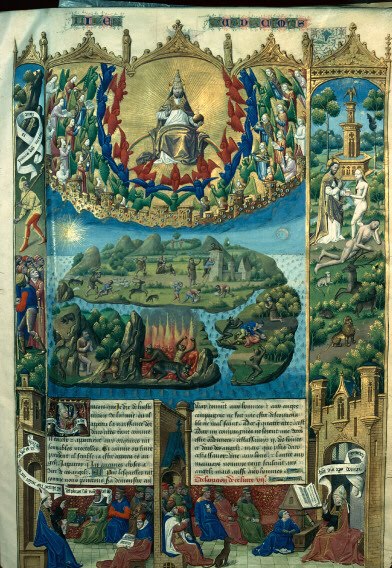
Surrounding God on his throne, angels in council, angels falling, on right, creation scenes with God clasping hands with Eve to pull her out of Adam's side.
Council in heaven, falling angels, creation scenes, God pulls Eve out of Adam's side by hand clasp
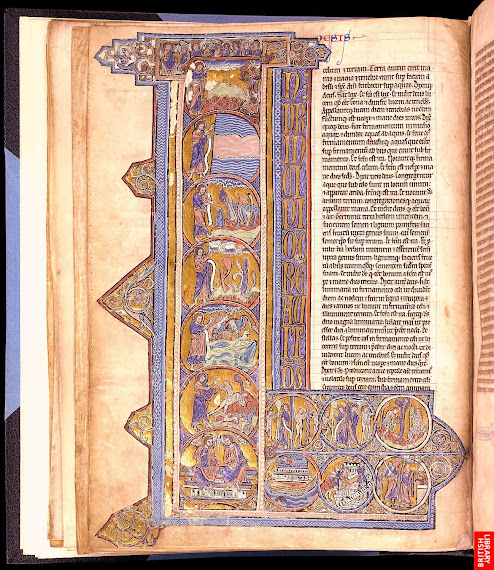
Bible of Robert de Bello- England S- E- Canterbury 1240 1253 Historiated initial with scenes of Genesis
Top enlarge portion that shows council in heaven & the fall of the angels

Bible of Robert de Bello- England S- E- Canterbury 1240 1253 Historiated initial with scenes of Genesis
Rev.12:1-5; Gothic manuscript, 1250-85 AD, Angel passes Christ child into Hands of God

See: Nigel Morgan, Early Gothic Manuscripts (II) 1250-85, (Lon.: Harvey Miller, 1988), fig. 37.
St. Michael & legend. Left, 2nd down, war in heaven.
Fall of the Rebell Angels - Nelson-Atkins Museum of Art in Kansas City, Missouri
War in Heaven, God's angels combat rebell angels & thrust them down into the underworld!
,+France,+Paris,+XVe.jpg)
Chute des anges déchus, BNF Richelieu Manuscrits occidentaux, Français 21, Fol. 17 Saint Augustin, Cité de Dieu (traduction Raoul de Presles), France, Paris, XVe
The Fall of the Rebel Angels from Les Très Riches Heures du duc de Berry (miniature), c. 1410
Michael defeats the Dragon- Raphael 1503-05 AD Paris- Musee du Louvre

To have a fallen foe under foot was an ancient symbol of victory, such as Michael standing on the devil or dragon. We also see this in Christ's victory over a fallen devil in the underworld, descent into hell, limbo, hades, purgatory, the abyss, where a personified death, or the devil is crushed by the doors of hell, as Christ resurrects the spirits held captive!
Michael defeats the devil underfoot - Raphael 1518 AD - Paris - Musee du Louvre
Hieronymus Bosch, Haywain triptych, AD 1515 - Council, war, fall of rebellious angels.
Pieter Bruegel the Elder- The Fall of the Rebel Angels - AD 1562
John Martin, 19th century English painter, 1825, Fall of the Rebel Angels
Pre-mortal Christ watches Adam's descent from heaven to earth

Creation of the World (fresco), Rusuti, Filippo (fl.1308-17) / San Francesco, Upper Church, Assisi, Italy / Giraudon / The Bridgeman Art Library International
The Milton Shield - Michael tells Adam & Eve about the War In Heaven!
Creation of Eve, Dutch illustration, 15th cent.

See: Reader's Digest, ABC's of The Bible, (NY: The Reader's Digest Association, 1991), p. 18.
Creation of Adam, God's left hand to Adam's left to clasp hands.
Harrowing of Hell. Christ about to clasp Adam's hand
Christ grips Adam's hand as souls are set free from hell.
Altar Gospels in silver-gilt cover with enameled medallions. Dated 1772.

Treasures From The Kremlin, An Exhibition from the State Museums of the Moscow Kremlin at The Metropolitan Museum of Art, New York, May 19--September 2, 1979 and the Grand Palais, Paris, Octover 12, 1979--January 7, 1980. (New York: The Metropolitan Museum of Art, Harry N. Abrams, Inc., 1979), p. 84-85, 173,Altar Gospels in silver-gilt cover with enameled medallions. Dated 1772. Christ's hold a crossed battle banner in his left hand, while with his right, he grabs hold of Adam's right hand to raise him up in the resurrection. Under Christ's feet are the doors of hell which have fallen, as he frees souls out of hell. Up above this seen is the Father, with a triangle behind his head, a traditional symbol for the trinity. Below the Father, is the dove, symbolizing the Holy Spirit. Note too how Christ's face shines with glory in this beautiful depiction of salvation for the dead.
God joining the hands of Adam & Eve to wed them!
Orants = Praying figures, are often depicted with up-lifting hands
Orants are praying saints, oftened praying with up raised hands.
Creation of Eve surrounded by praying angels in heavenly council?
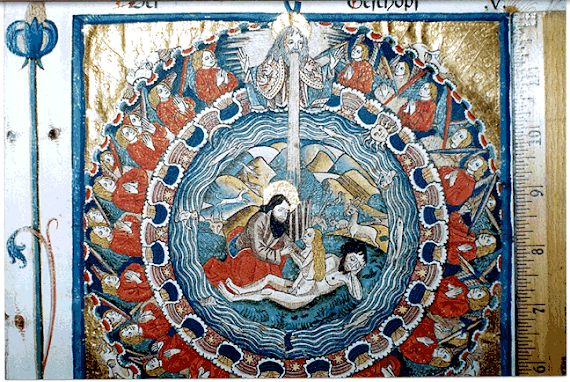
BIBLE German Nuremberg Anton Koberger 17 February 1483 God pulls Eve out Adam's side, by hand clasping
Early Christain Prayer Circles - Orants with up-raised hands
Ladder to "Christian moral perfection" with Christ pulling souls into heaven by wrist grip.

St. John Climacus, 15th c. Lenin Library, Moscow
Protective blanket, like protective robes souls are clothed in to protect them from winged demons!
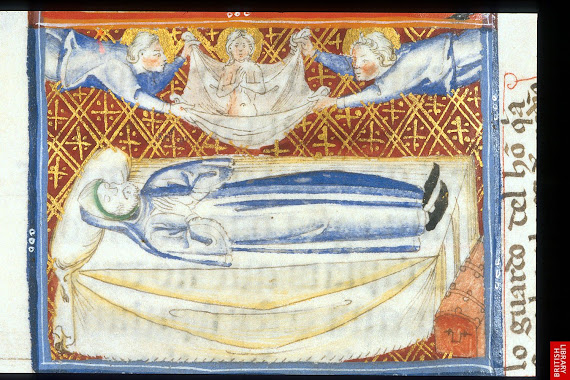
Matfré Ermengau of Béziers's Breviari d'Amour of angels carrying the soul of a virtuous man to Heaven
Judgment: On Christ's lower right side, souls on Abram's(?) lap, clasp hands, saved in paradise!
Paradise scenes, greetings & hand clasping guides
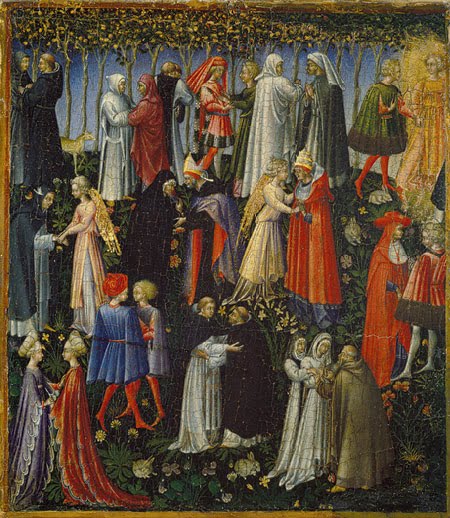
Giovanni di Paolo Giovanni di Paolo di Grazia Italian Sienese ca 1400–1482 Hand greetings in paradise
Peter greets souls, with hand clasping on Christ's right hand.
2 Ways, right hand path on Christ's right hand of judgment, hand grip & clothed in garments!
"2 ways" Right & Left Paths, Peter clasp hands of souls on right hand of Christ's Judgment.
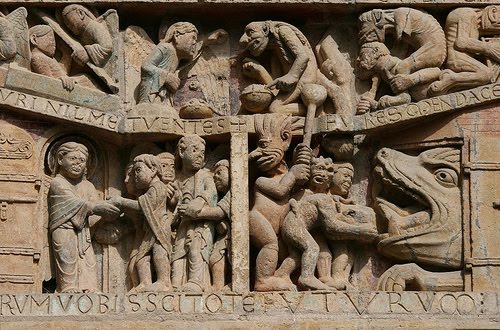
12th cent., Abbey Church of St. Foy Peter at door to paradise
More Evidences in Historic Christian Art
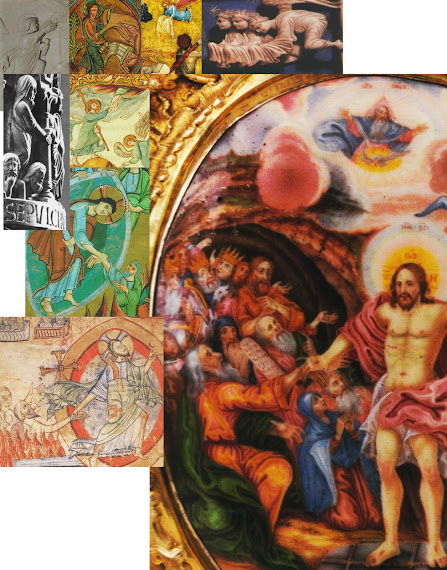
Christ descents, ascensions, robes for martyrs, etc.
Orant = Praying female, face veiled, up-lifted hands.

Orant figure from Catacomb of Priscilla, Mid 2nd - 3rd c.
Christ & Adam grasp hands as Christ starts the harrowing of hell.
+Harrowing+of+Hell..jpg)
Hjembæk. c.1475. (M-K 11-085) Harrowing of Hell.
Christ's descent into Limbo, 4th-5th century AD. Adam's right to Christ's right. Venice, St. Marks.

Early Christian Art, Late Roman & Byzantine Empires, 3rd - 7th c. fig. 83.
Mosaic of hand symbol on pillar, with curtains on both sides.
Hand clasp welcome of righteous on right hand of Christ's judgment
Christ in Purgatory, 14th cent. Gothic painting, Master of Westphalia, redrawn by Debra Worth.

Gothic Painting I, p. 48, Wallraf-Richartz Mu., Cologne, Col. dir. Claude Schaeffner, etc., Eng.: 1968.
Christ lifting Adam out of hell, Angels assist Christ
Baptism for the Dead: The Coptic Rationale, John A Tvedtnes
12 oxen under font represent 12 apostles. Baptism of Christ, angels with garments. Latin script

12 oxen, Renier of Huy, Baptismal Font, 1107-18
Liege- Oxen analogy of moten sea 1 Kings 7:23- 12 apostles - Rupert of Deutz De Trinitate, 1117
Baptism of Christ hand of Father angel with garments
Baptism as type of Christ's descent into hades, under doors watery underworld monster is crushed!
Baptism of Christ, Angel holds white robes. Early Christians dressed in white, symbolic of purity.

Ersin Alok Tolali Fresco mid-11th-13th
Mary's soul, in Christ's hands. Angel with robe, a traditional symbol for deification.
Ivory - Lower Saxony early 11th c. Christ's descent into hell & ascension into heaven.
4th century Christian ivory work, Munich, Ascension of Christ.
Ivory work of Christ's ascension into heaven. From Rome, 400 CE. "Reidersche tafel"
Ascension of Christ into Heaven, drawing of a Christian work dated 980 AD.
Christ's Ascension, Drogo Sacramentary (Paris BN lat. 9428), 9th cent.

L'Ascension 40 jours après la résurrection de Pâques Jésus caché par une nuée s'élève dans le ciel IXe siècle Bibliothèque nationale Paris
Christ's ascension, Father's right hand extends to clasp & greet him
Ascension of Christ into Heaven, ca. 1050
The Door Panels of Santa Sabina, 4th-5th century AD (?)
Christmas Legends of Christ's wanderings around the world in different guises! (Matthew 25)
Redrawing of Mayan apron hand symbol, Aug. 1880

Augustus Le Plongeon, Sacred Mysteries, (NY: Macoy & Masonic Supply Co., 1909), p. 40.
Corn God resurrected by Head Band Twins, Late Classic vessel.

Susan Milbrath, Star Gods of The Maya, Astronomy In Art, Folklore & Calendars, (Texas Un. Press, 1999), 100-1, fig.3.11
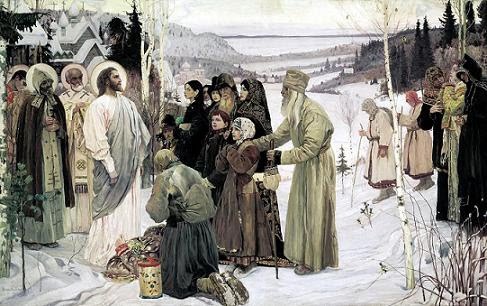







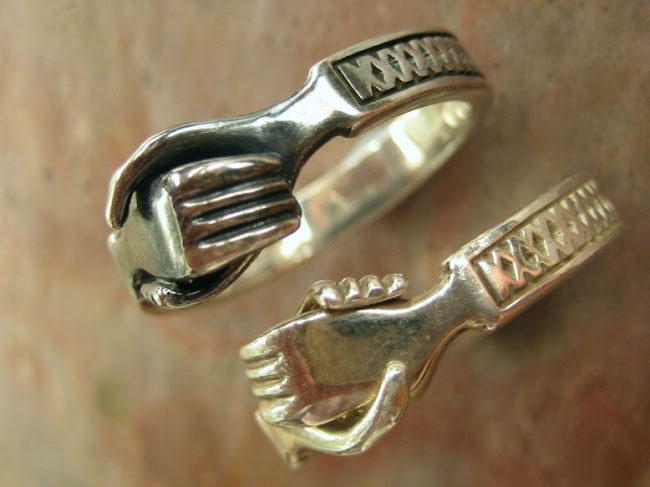
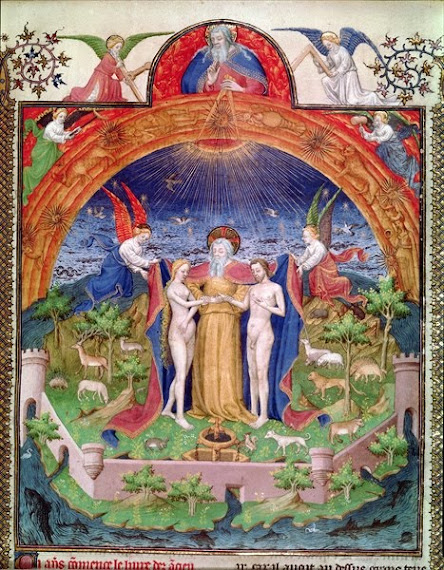


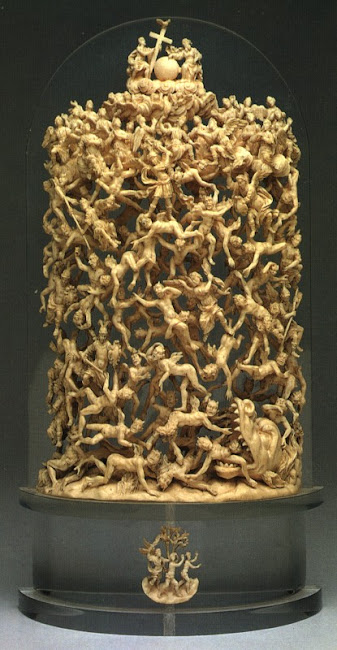
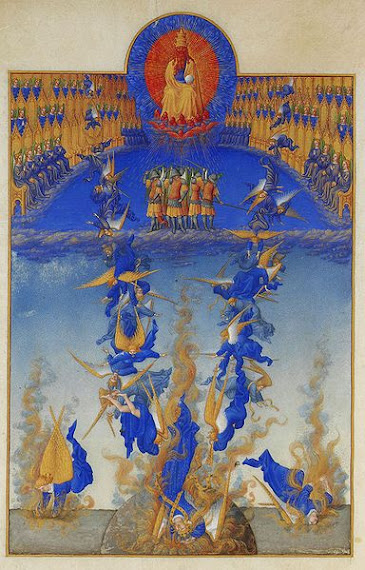,+c.+1410.jpg)



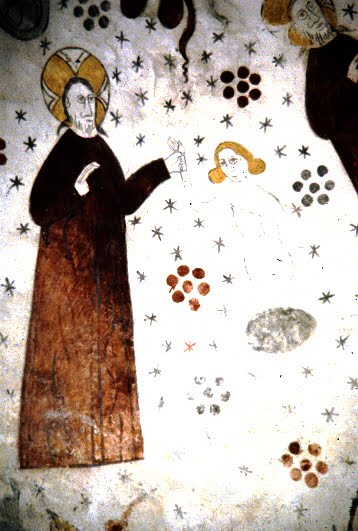++Creation+of+Adam.jpg)
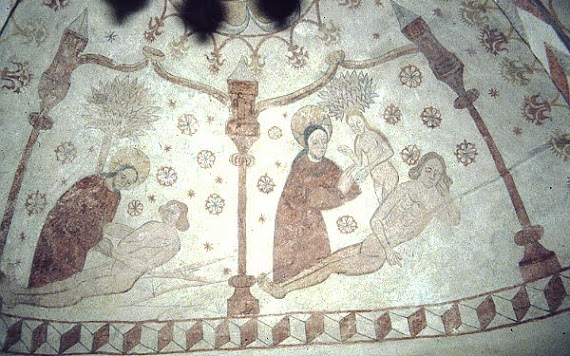++Creation+of+Adam+and+Eve..jpg)
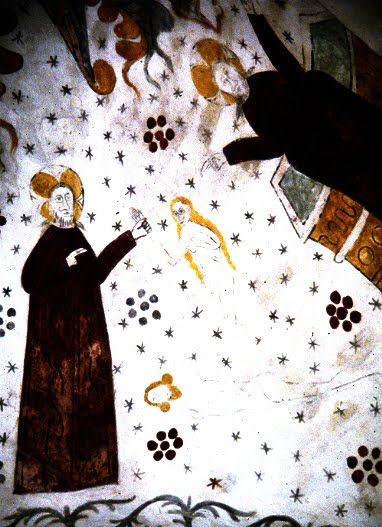++Creation+of+Eve.jpg)
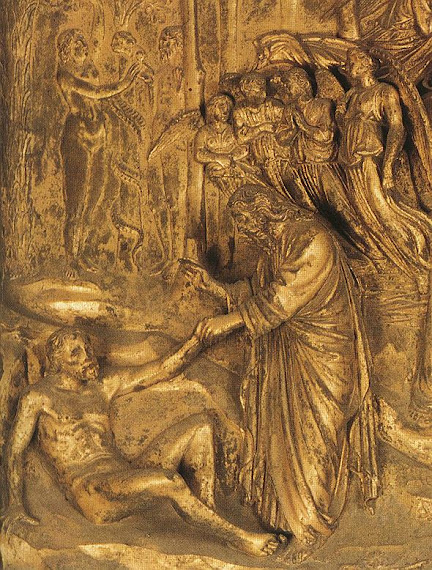+Creation+of+Adam+hand+clasp+with+God+-+1425-52+Bronze+door+to+Baptistry+-+Florence.jpg)
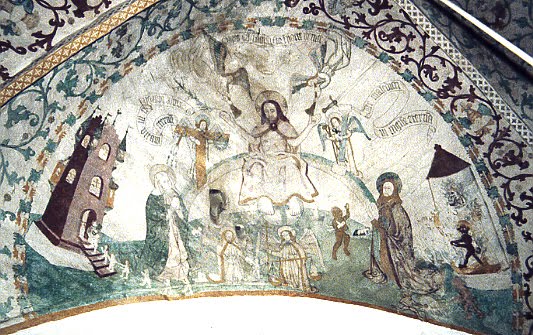++Judgment.jpg)
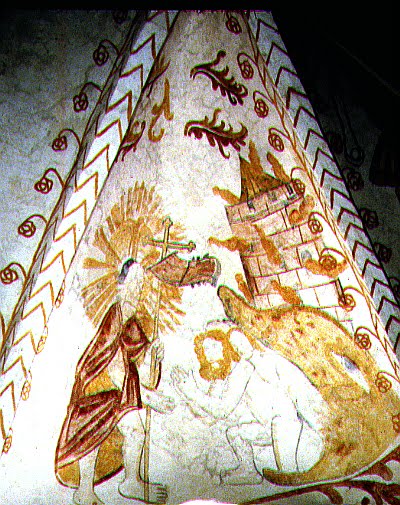++Harrowing+of+Hell..jpg)
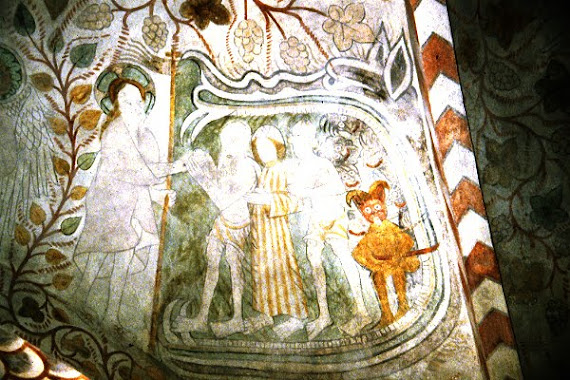++Harrowing+of+Hell..jpg)
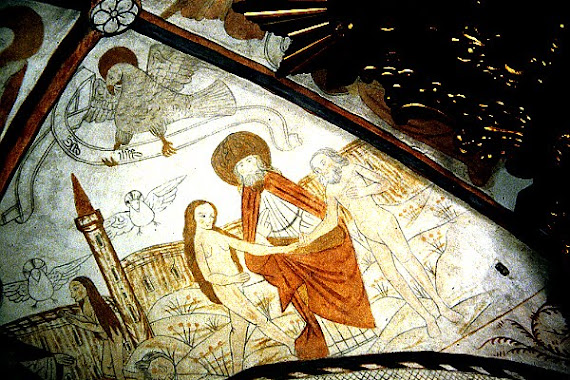++Marriage+of+Adam+and+Eve.jpg)
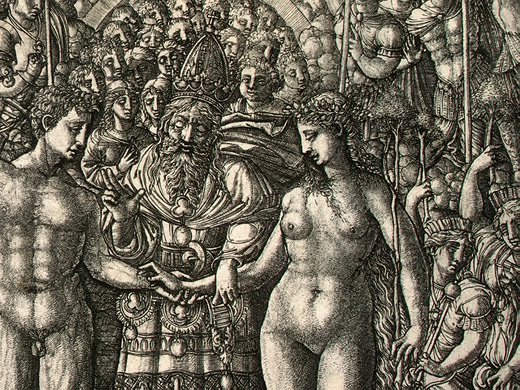
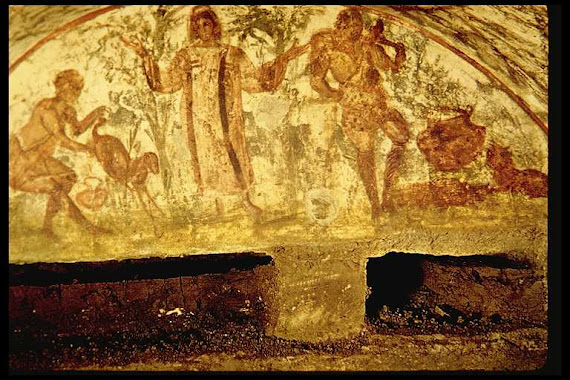
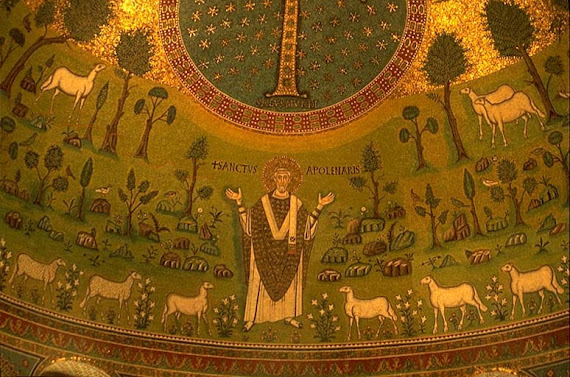

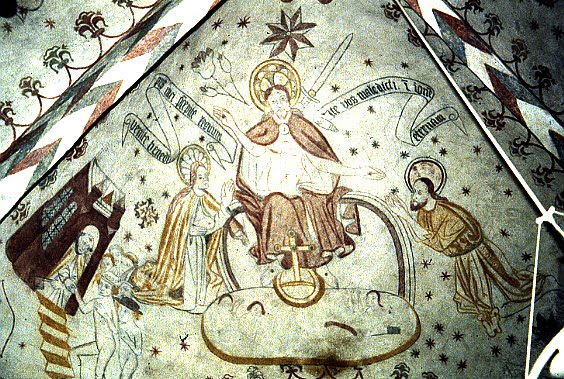++Judgment.jpg)
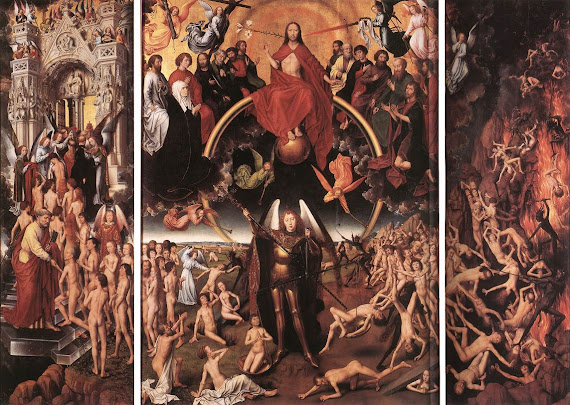


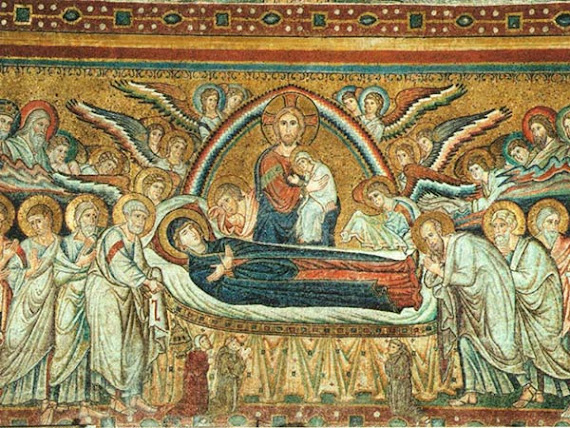
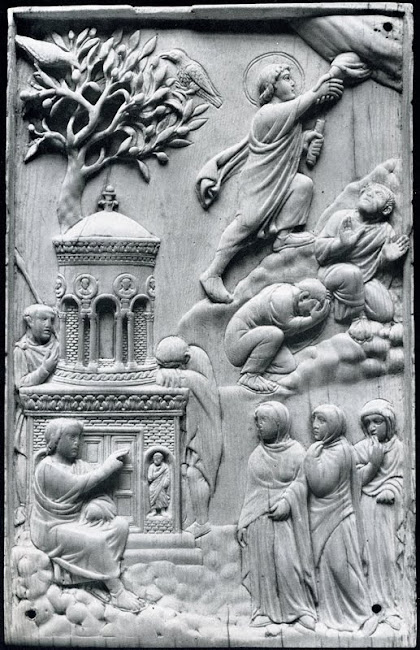


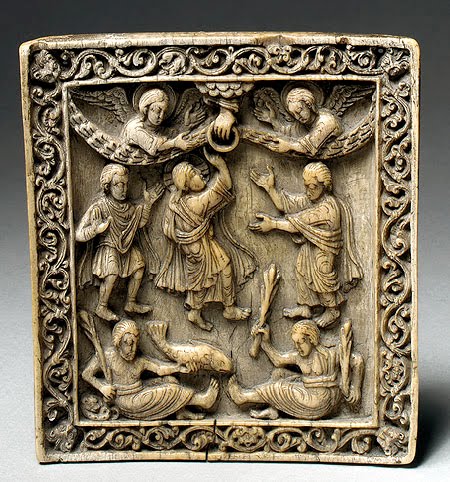

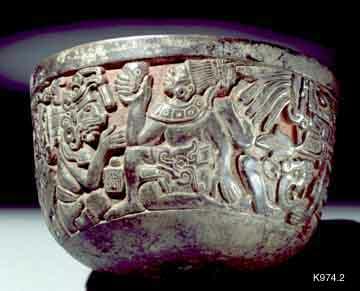

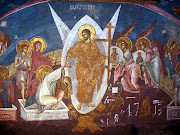




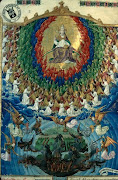


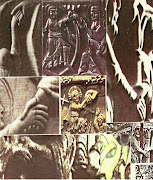






















No comments:
Post a Comment